275 episodes
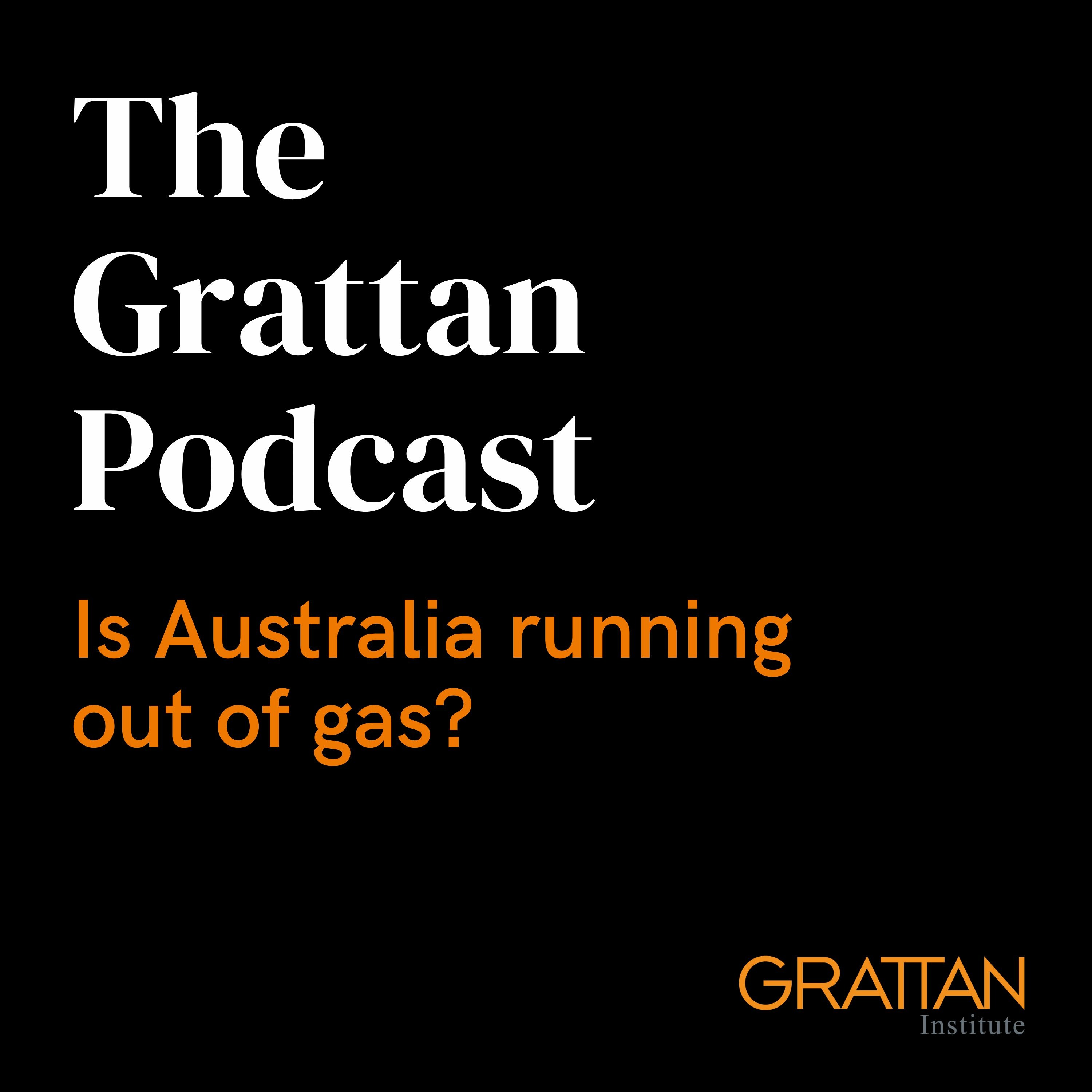

The Australian Energy Market Operator has published its annual Gas Statement of Opportunities report. The report forecasts difficult times ahead for Australia’s east coast gas market, with a risk of shortfalls on peak demand days in 2025 and seasonal supply gaps from 2026. So, is Australia running out of gas? At the household level, people are concerned about keeping the heater going and the cooktop on. In the bigger picture, governments and industry are grappling with a complex change from fossil fuels to renewable energy. In this new Grattan Podcast, host Kat Clay talks to our energy expert Alison Reeve about whether Australia can expect gas shortfalls in the future, and where the responsibility lies for avoiding – or at least managing – these potential outages. Read the reports mentioned in the podcast: AEMO's Gas Statement of Opportunities report https://buff.ly/4cyw9bB Getting off Gas Grattan report: https://buff.ly/3NdV7RI
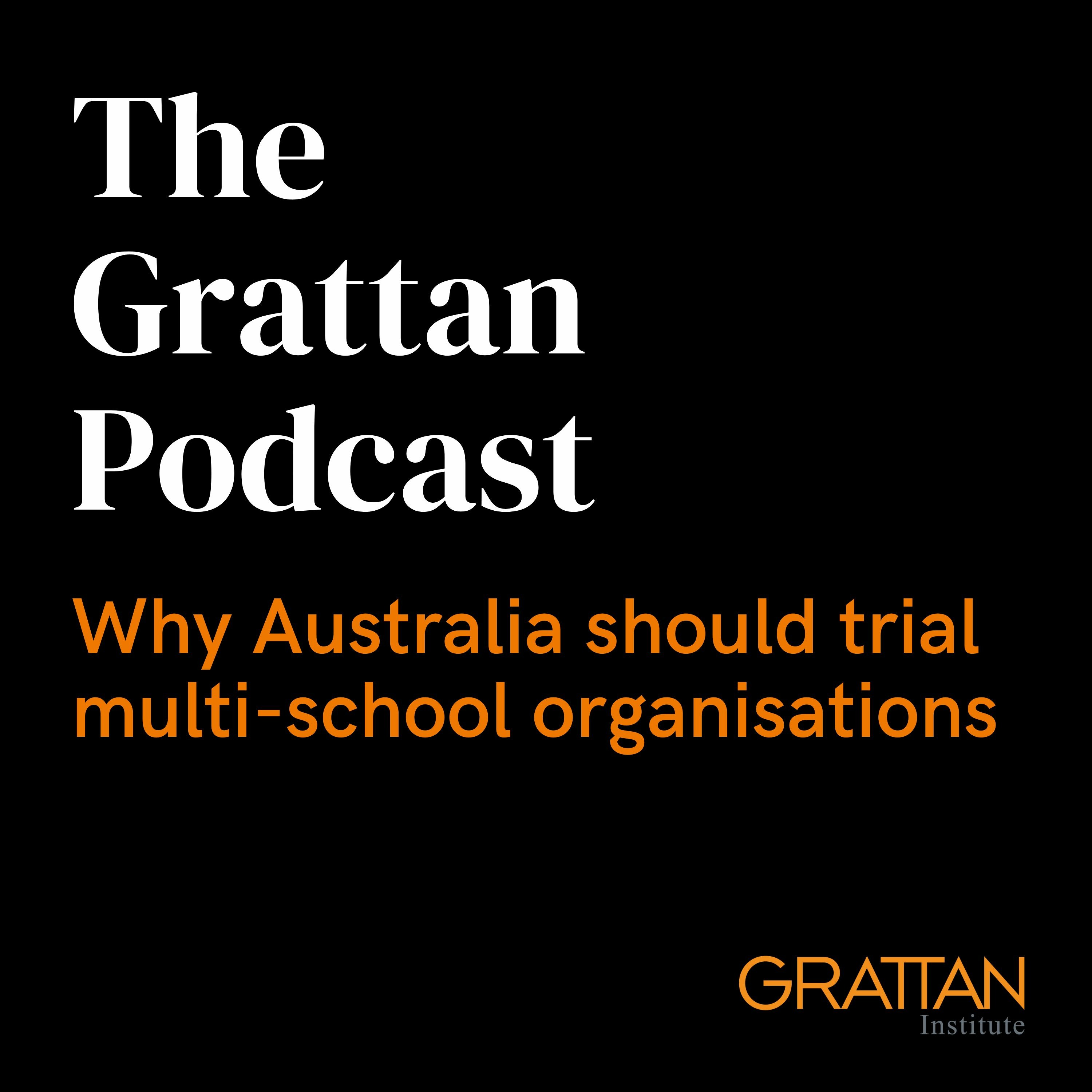

School principals have a big impact. A highly effective principal can raise student achievement by up to seven months a year for a typical student, and even more in disadvantaged settings. But running a school well is a difficult job. Just ask any principal. Schools are complex organizations. The average secondary school principal manages a budget of over 15 million dollars, which is more than the turnover of 98% of Australian businesses. And Australia expects each one of its schools to provide an excellent education for every child, but governments have radically underestimated how hard this is for schools to achieve. The result is that schools often feel poorly supported in their work. Our latest report, Spreading success: Why Australia should trial multi-school organizations, delves into the question of how we best support schools to improve. This podcast discusses the new education report with authors Jordana Hunter, Amy Haywood, and Nick Parkinson. Read the report: https://grattan.edu.au/report/spreading-success-why-australia-should-trial-multi-school-organisations/
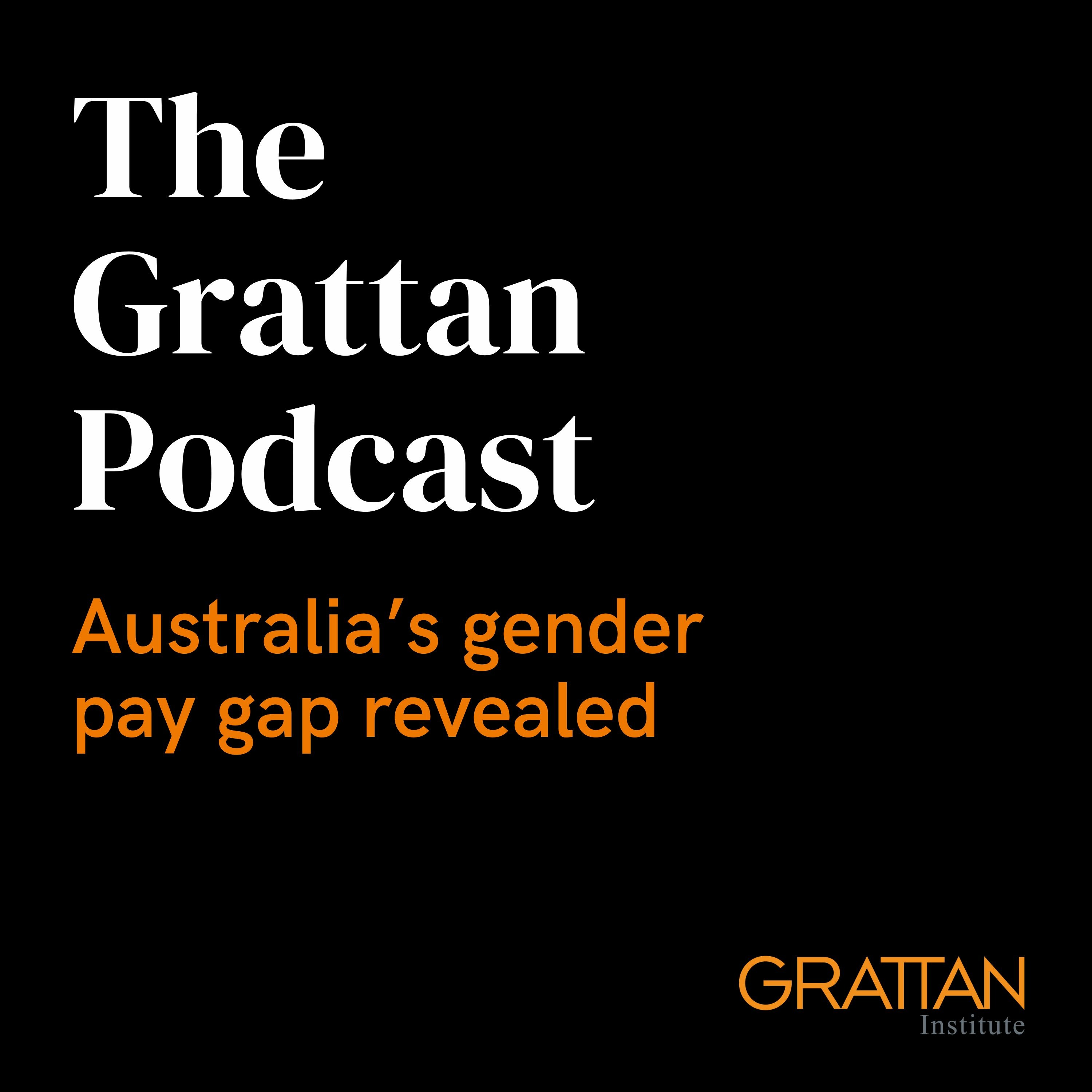

The release of Australian gender pay gap data by the Workplace Gender Equality Agency has highlighted the big discrepancies in women's salaries, the absence of women in traditionally male dominated industries, and the lack of women in senior management of many major businesses. But while the release of this data has sparked a national discussion on why women are often paid less, there's more nuance to this story than what first appears. Equity expert Natasha Bradshaw breaks down what the gender pay gap data shows, and what we can expect next in light of these revelations. Hosted by Kat Clay. Helpful links WGEA Data Explorer https://t.co/IKTGpk7mEE WGEA Gender Pay Gaps Snapshot https://buff.ly/3TkuYEQ WGEA interactive: https://buff.ly/49YnWuW The publication of the gender pay gap is coming. Here's what you need to know - Article by Natasha Bradshaw https://buff.ly/49ZFDKT
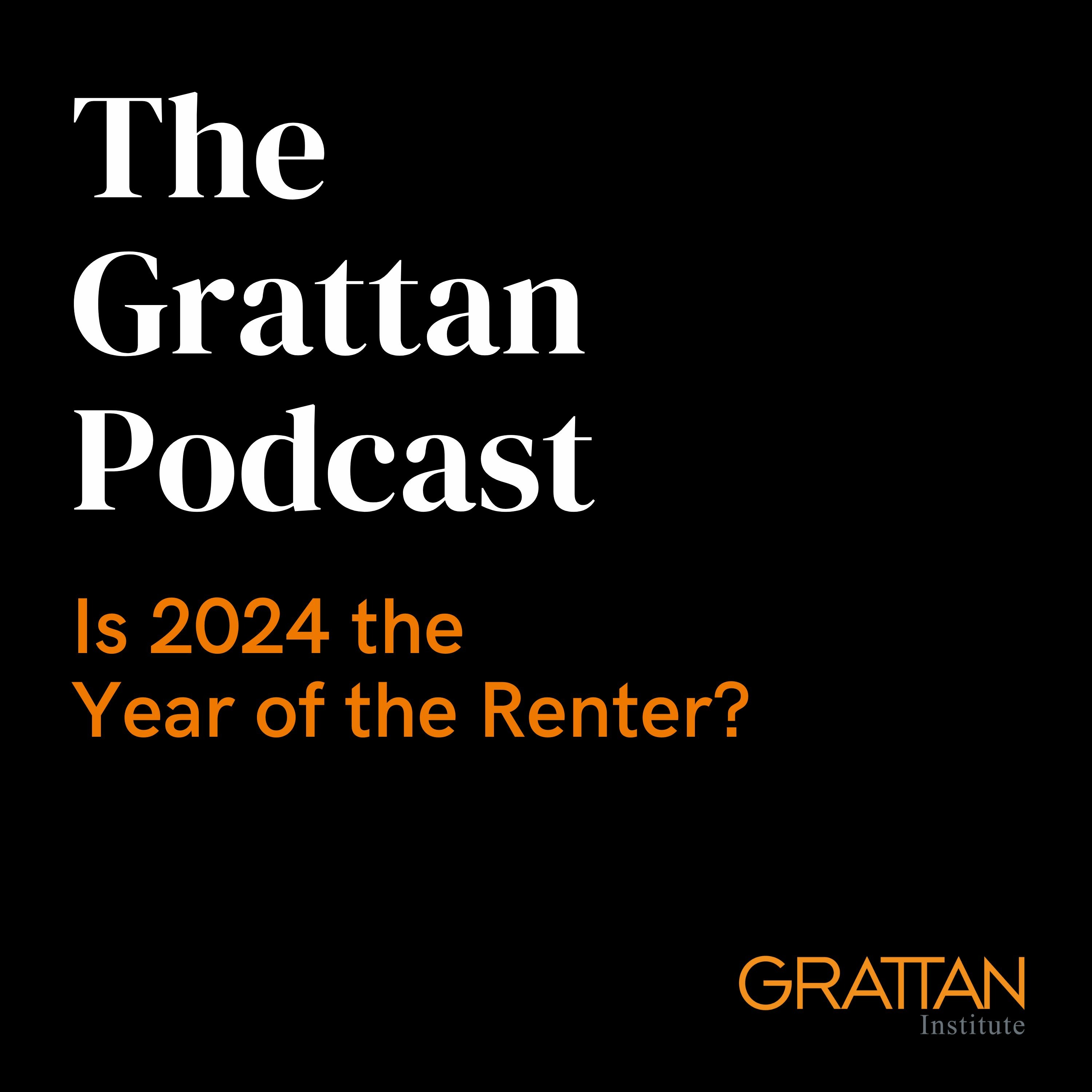

Rents keep going up and up, and it doesn't seem like a reprieve is coming any time soon. The Reserve Bank has indicated that rent inflation is likely to remain high over the year ahead, before easing gradually. But with a federal election looming on the horizon, the government will be looking for answers, and fast. Listen to housing experts, Joey Moloney and Esther Suckling, discuss why 2024 might just be the year of the renter with host Kat Clay. Donate to Grattan: https://grattan.edu.au/donate/ Read the article: https://grattan.edu.au/news/2024-year-of-the-renter/
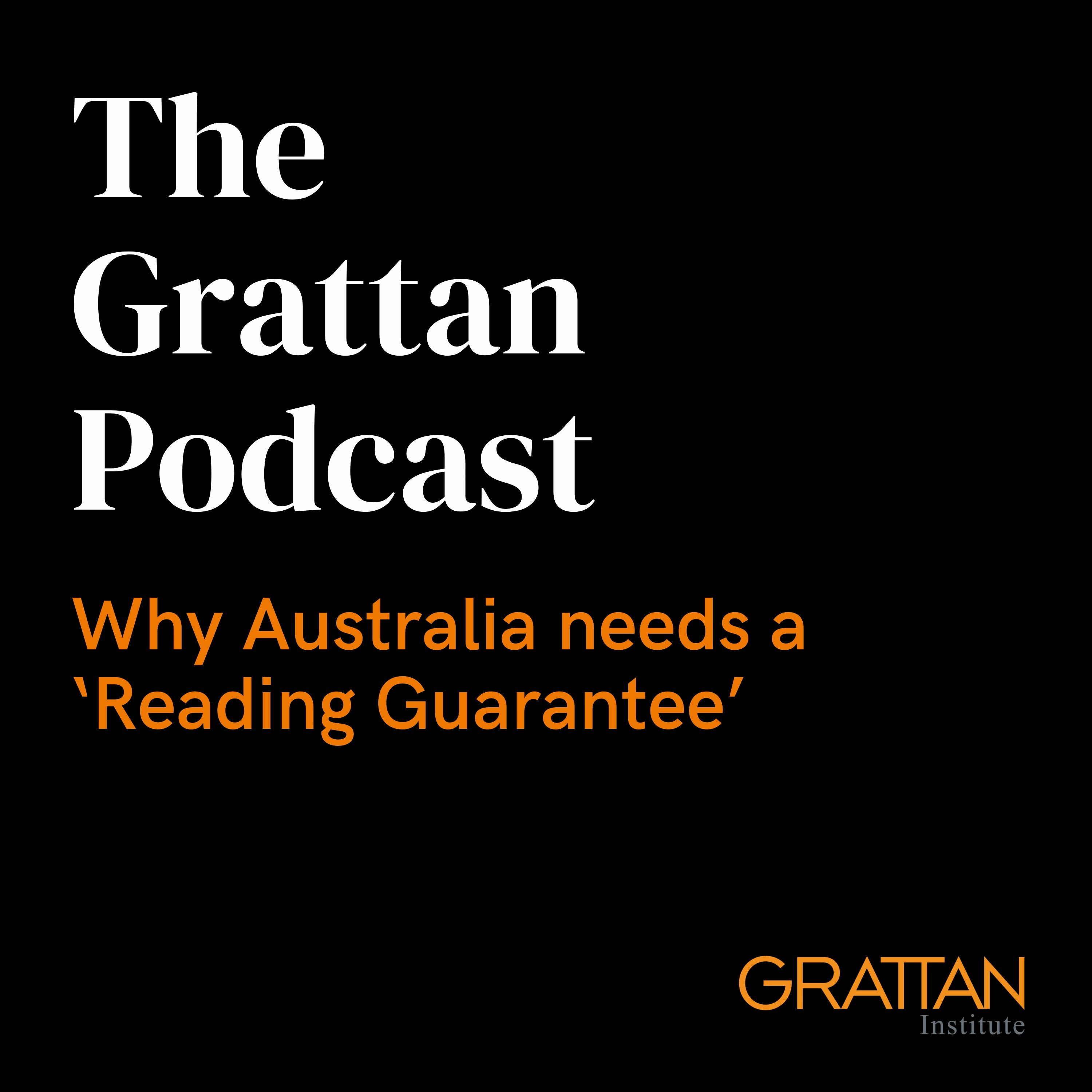

Australia has a reading problem. A third of children can't read proficiently. In the typical Australian school classroom of 24 students, eight can't read well. This has huge flow on effects for their success in life and costs Australia billions of dollars. And the worst thing is, it's preventable. In this podcast, report authors Jordana Hunter and Anika Stobart discuss The Reading Guarantee: How to give every child the best chance for success, and offer a new plan of how to reform reading education in Australia. Read the report: https://grattan.edu.au/report/reading-guarantee/ Transcript available on our website: https://grattan.edu.au/news/why-australia-needs-a-reading-guarantee/
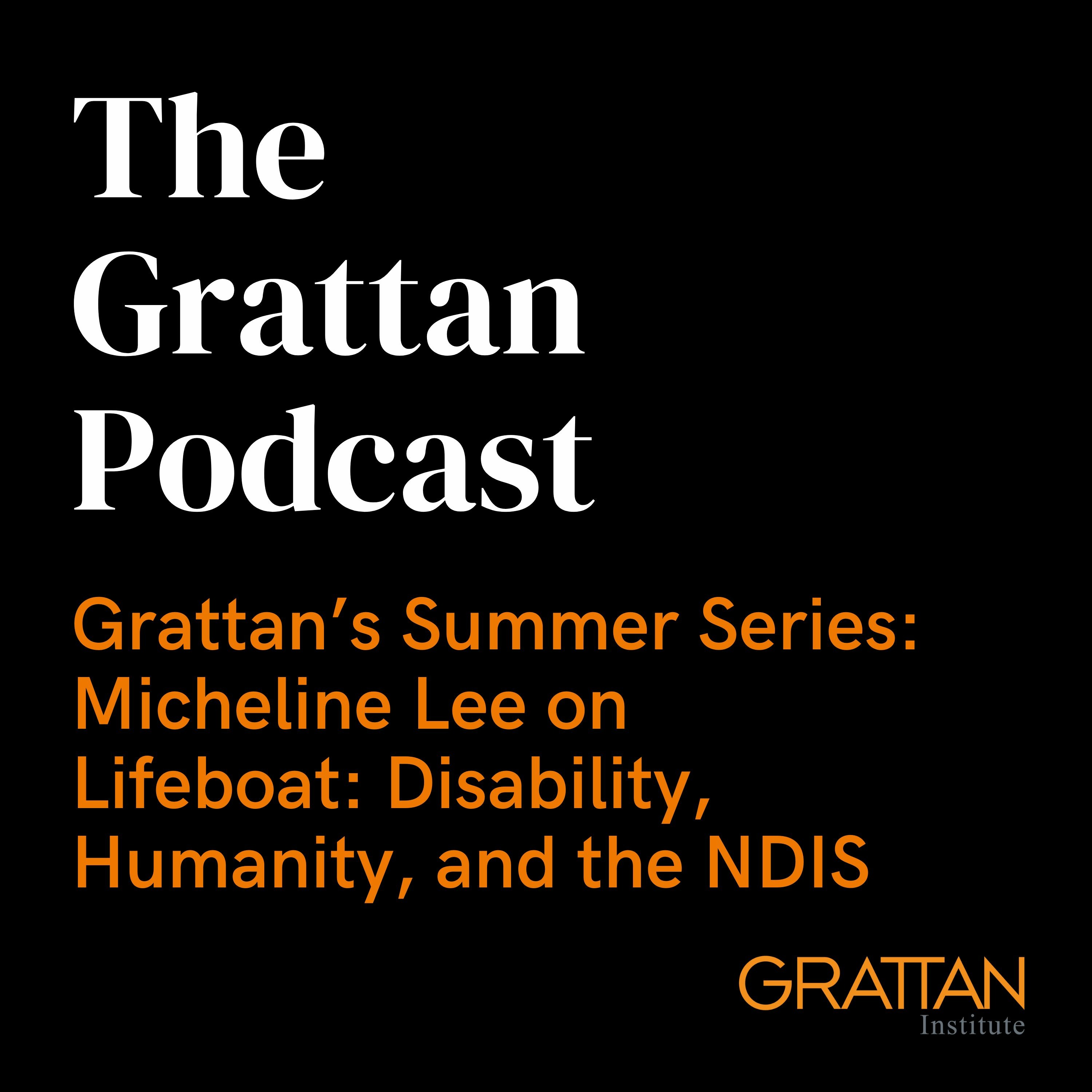

Each year Grattan selects its best books of the past 12 months as recommended reading for the Prime Minister and all Australians over the summer holidays. In this summer series, we discuss some of the works on the list with the people who wrote them. In this special podcast, Hannah Orban and Alastair McEwin discuss the Quarterly Essay, Lifeboat: Disability, Humanity, and the NDIS, with author Micheline Lee. The essay explains what it's like to live with disability in Australia, the big improvements that the National Disability Insurance Scheme has brought about, and the challenges that remain in accessing and using the NDIS. Read the essay: https://www.blackincbooks.com.au/books/lifeboat Read the Prime Minister's Summer Reading List: https://grattan.edu.au/news/prime-ministers-summer-reading-list-2023/
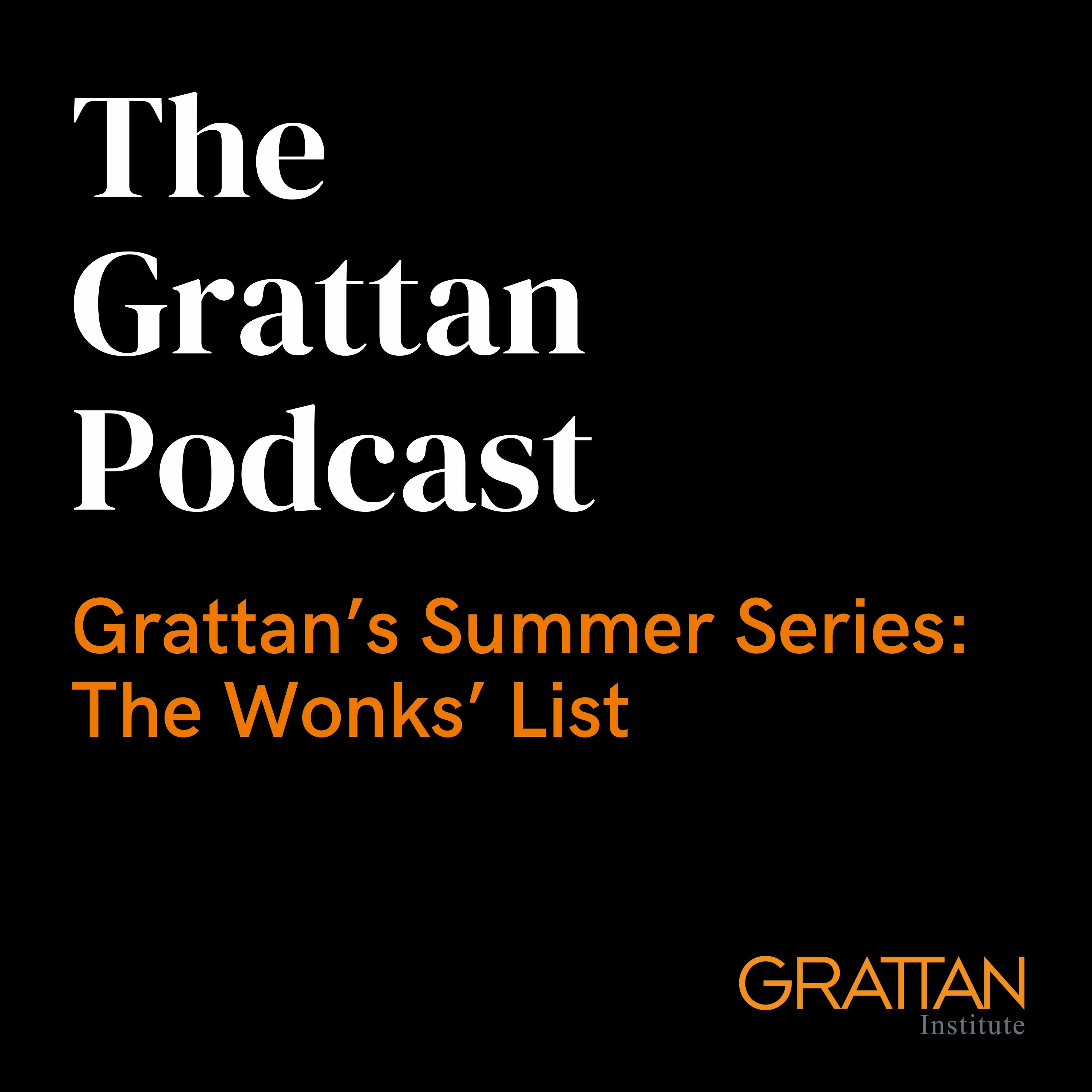

In addition to Grattan Institute’s annual Prime Minister’s Summer Reading List, our Wonks’ List highlights some of the year’s best technical policy reads, for anyone who wants to take a deeper dive. In this special podcast, Senior Associate Natasha Bradshaw discusses the Wonks' List with Associate Elizabeth Baldwin and Health Program Director Peter Breadon. Show notes and references The Wonks' List and our rationale: https://grattan.edu.au/news/wonks-list-2023/ Men. Male-biased sex ratios and masculinity norms: evidence from Australia’s colonial past: https://link.springer.com/article/10.1007/s10887-023-09223-x Zero-Sum Thinking and the Roots of U.S. Political Divides: https://www.nber.org/papers/w31688 The rise and fall of peer review: https://www.experimental-history.com/p/the-rise-and-fall-of-peer-review Sugar-Sweetened Beverage Taxes and Perinatal Health: A Quasi-Experimental Study: https://www.ajpmonline.org/article/S0749-3797(23)00158-7/fulltext Swallow This: Childhood and Adolescent Exposure to Fast Food Restaurants, BMI, and Cognitive Ability: https://www.nber.org/papers/w31226 Social Media and Mental Health: https://www.aeaweb.org/articles?id=10.1257/aer.20211218 Donate to Grattan: https://grattan.edu.au/donate
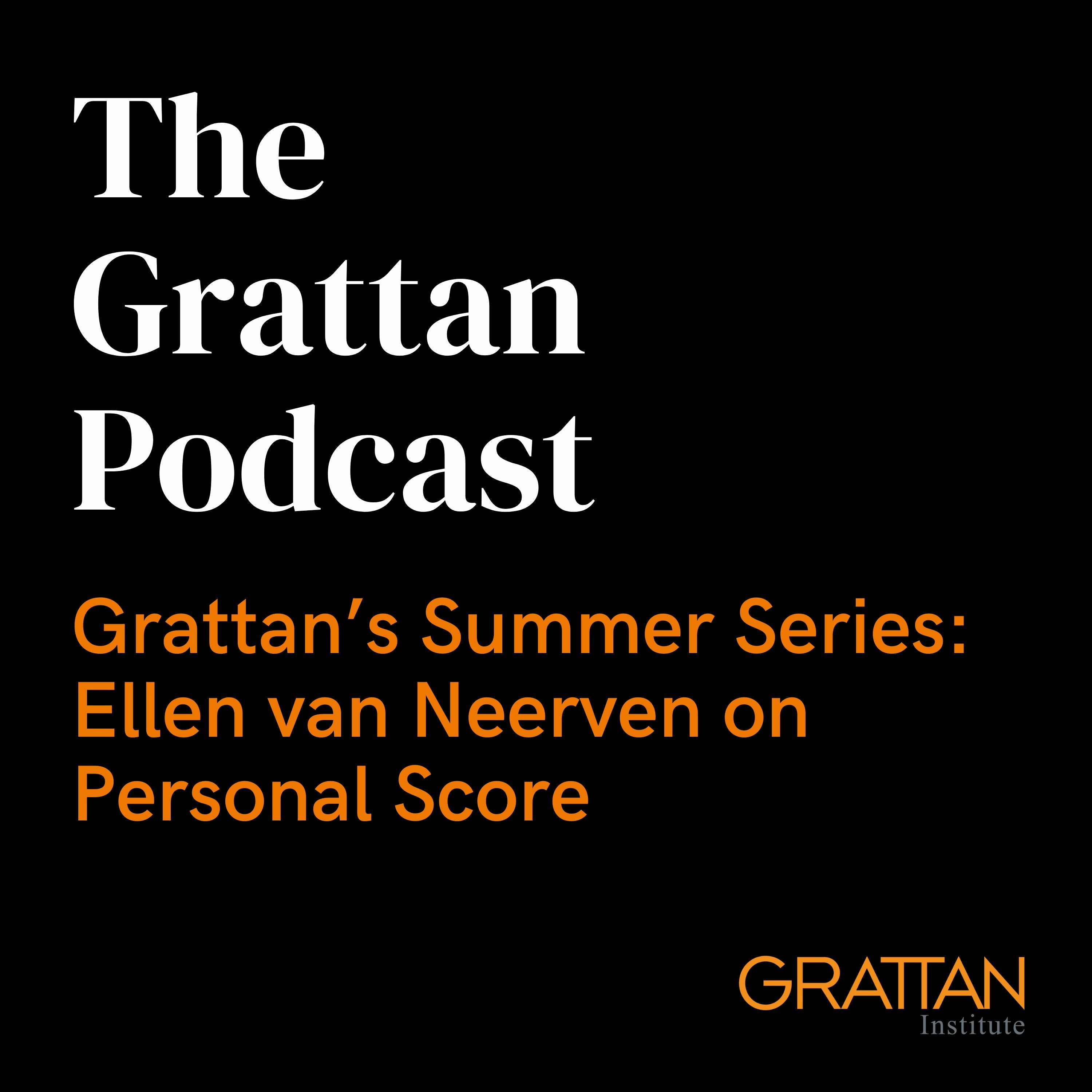

Each year Grattan selects its best books of the past 12 months as recommended reading for the Prime Minister and all Australians over the summer holidays. In this summer series, we discuss some of the works on the list with the people who wrote them. In this special podcast, award-winning Mununjali author, Ellen Van Neerven, discusses their book Personal Score with Grattan associates Esther Suckling and Dominic Jones. The book is an expansive examination of race, gender and sexuality, told through the lens of playing sport. Read the full Prime Minister’s Summer Reading List: https://grattan.edu.au/news/prime-ministers-summer-reading-list-2023/ Read Personal Score: https://www.uqp.com.au/books/personal-score-sport-culture-identity
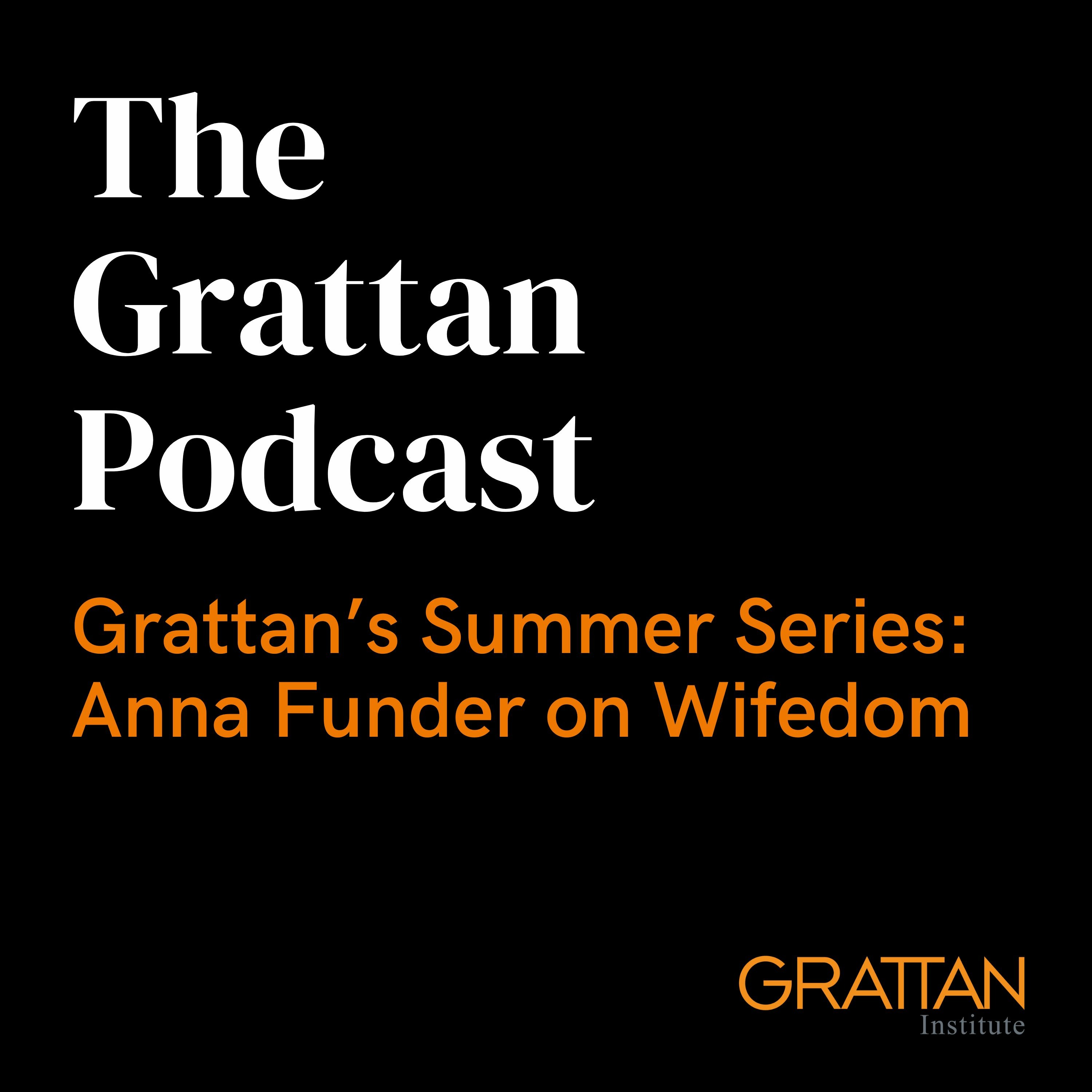

Each year Grattan selects its best books of the past 12 months as recommended reading for the Prime Minister and all Australians over the summer holidays. In this special summer series, we discuss some of the works on the list with the people who wrote them. In this special podcast, renowned Australian author Anna Funder discusses her literary non-fiction masterpiece, Wifedom. Hosted by Anika Stobart, Senior Associate, and Amy Haywood, Education Deputy Program Director. Read the full Prime Minister's Summer Reading List: https://grattan.edu.au/news/prime-ministers-summer-reading-list-2023/ Purchase Wifedom by Anna Funder: https://www.penguin.com.au/books/wifedom-9780143787112
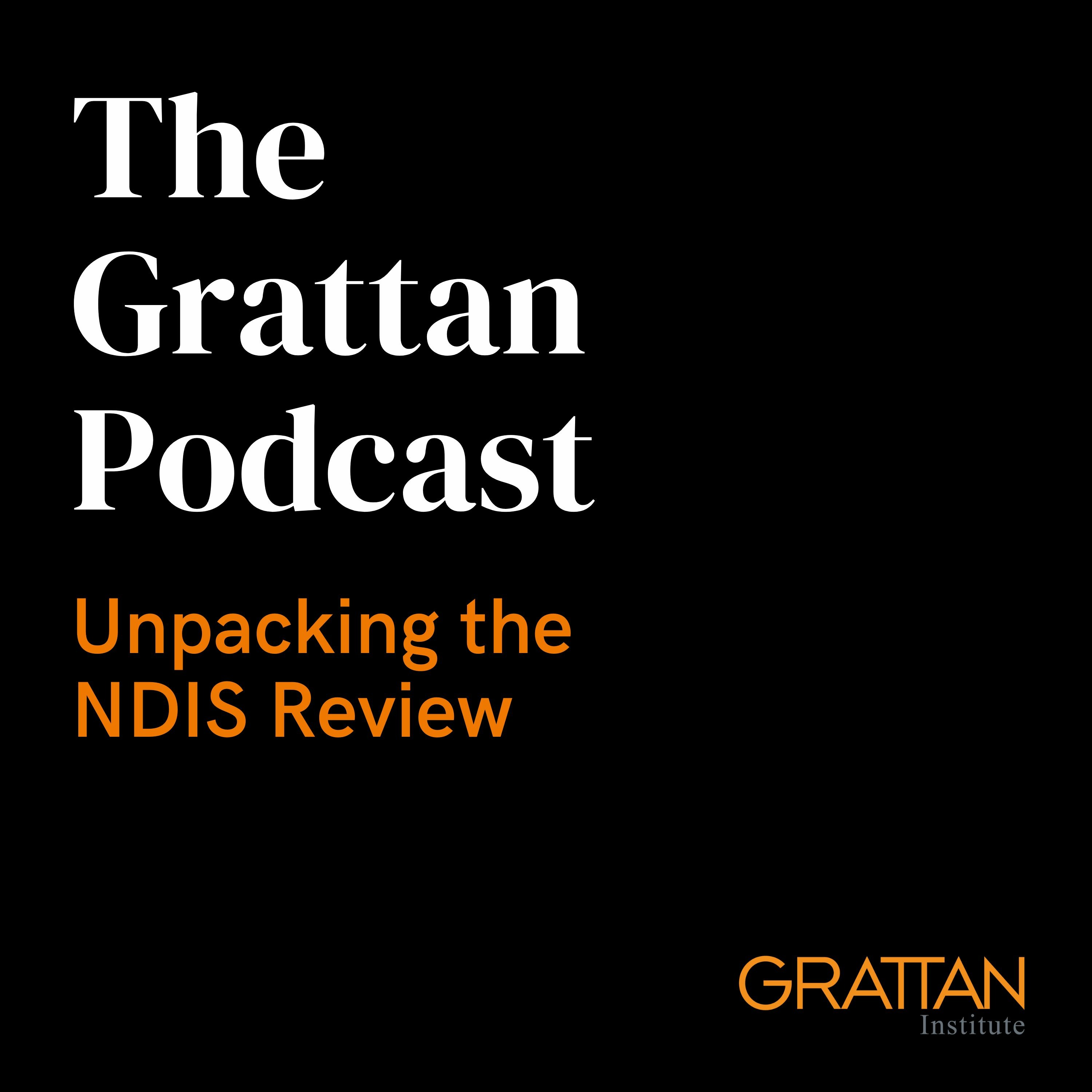

The National Disability Insurance Scheme Review has published its final report. The report contains 26 recommendations and 139 actions, many of which relate to creating a unified system of support for people with disability. But does the review go far enough? Is it going to deliver better outcomes for people with disability that rely on the NDIS, while creating a plan to manage spiralling costs? Listen to host Kat Clay, in conversation with Sam Bennett, Disability Program Director, and Hannah Orban, Associate, about what the NDIS review means for disability services in Australia. Read the NDIS review: https://www.ndisreview.gov.au/resources/reports/working-together-deliver-ndis Donate to Grattan: https://grattan.edu.au/donate/
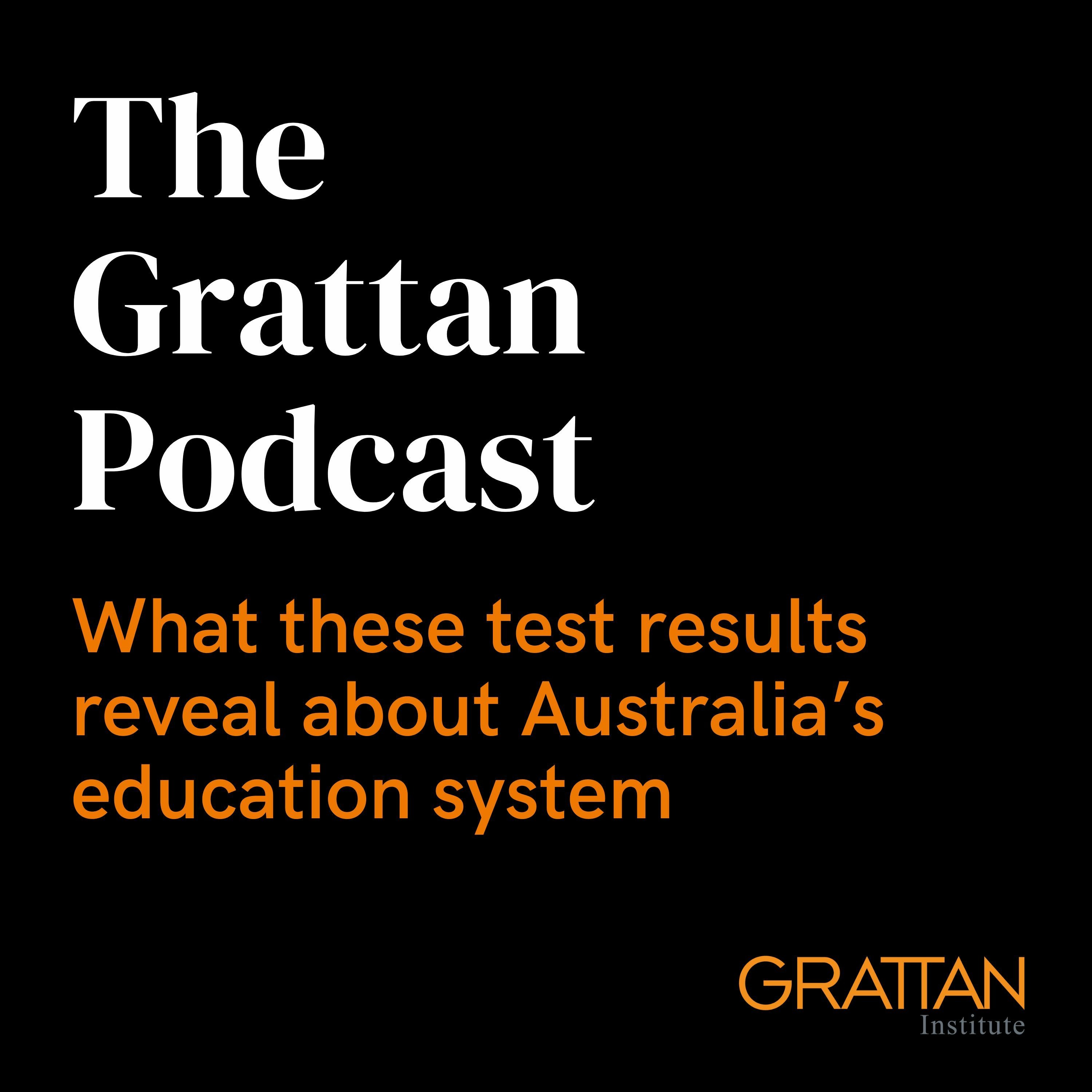

Last week, the OECD released the results of the program for international student assessment, better known as PISA. Every three years, hundreds of thousands of 15-year-old students from across the world sit tests in maths, science and reading. But what do the results show for Australia? And are our students doing better, worse, or about the same? Listen to Jordana Hunter, Education Program Director, and Nick Parkinson, Senior Associate, in conversation with host Kat Clay about the test and what the results reveal about Australia's education system.
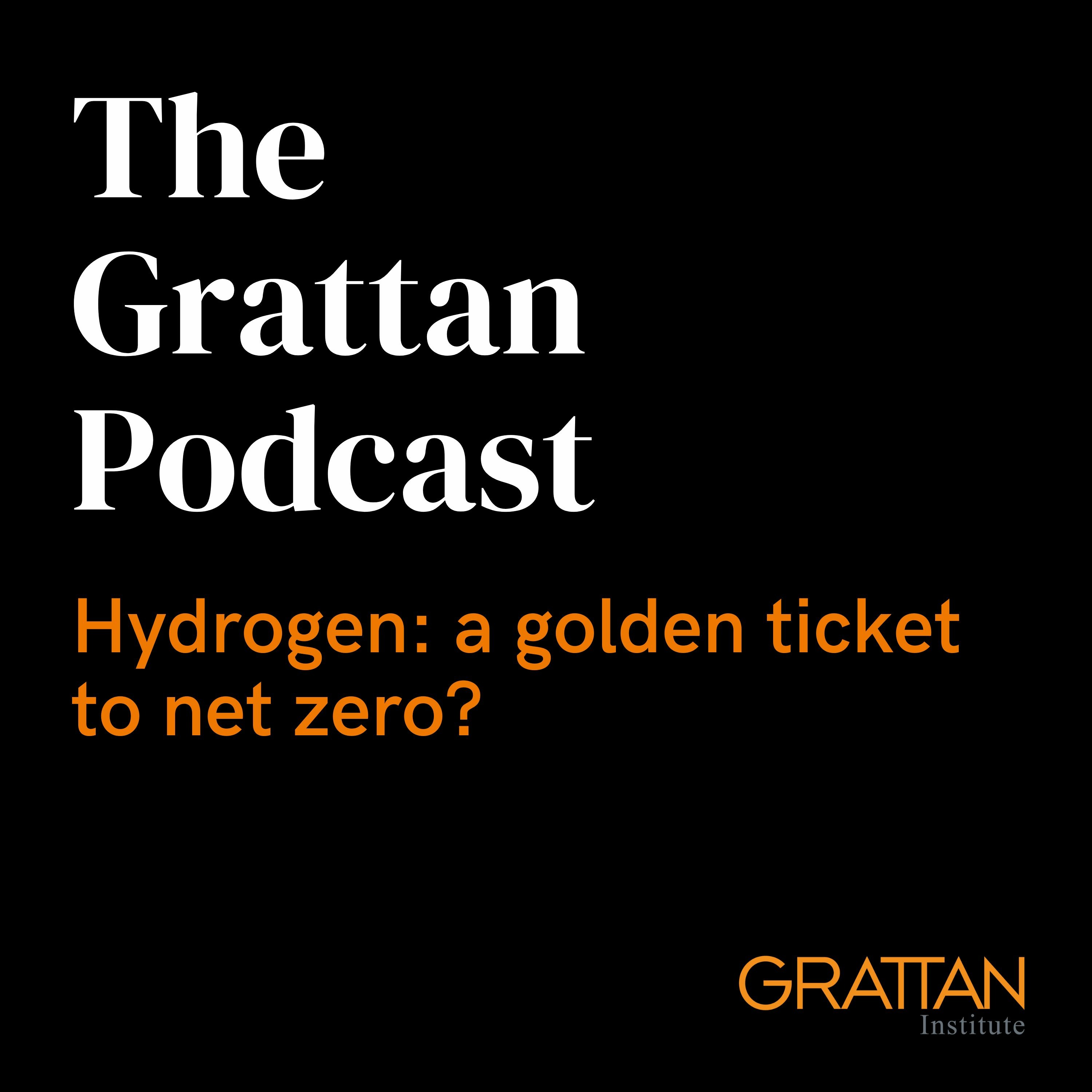

From cars to homes to industry, hydrogen has been hyped as an all-encompassing solution to meeting Australia’s emissions targets. But is it the golden ticket to a net-zero future? With the National Hydrogen Strategy under review, it’s time to get truly strategic with hydrogen. Listen to energy experts Alison Reeve and Richard Yan discuss their new report, *Hydrogen: hype, hope, or hard work?*. Read the report: https://grattan.edu.au/report/hydrogen-hype-hope-or-hard-work/ Donate to Grattan: https://grattan.edu.au/donate
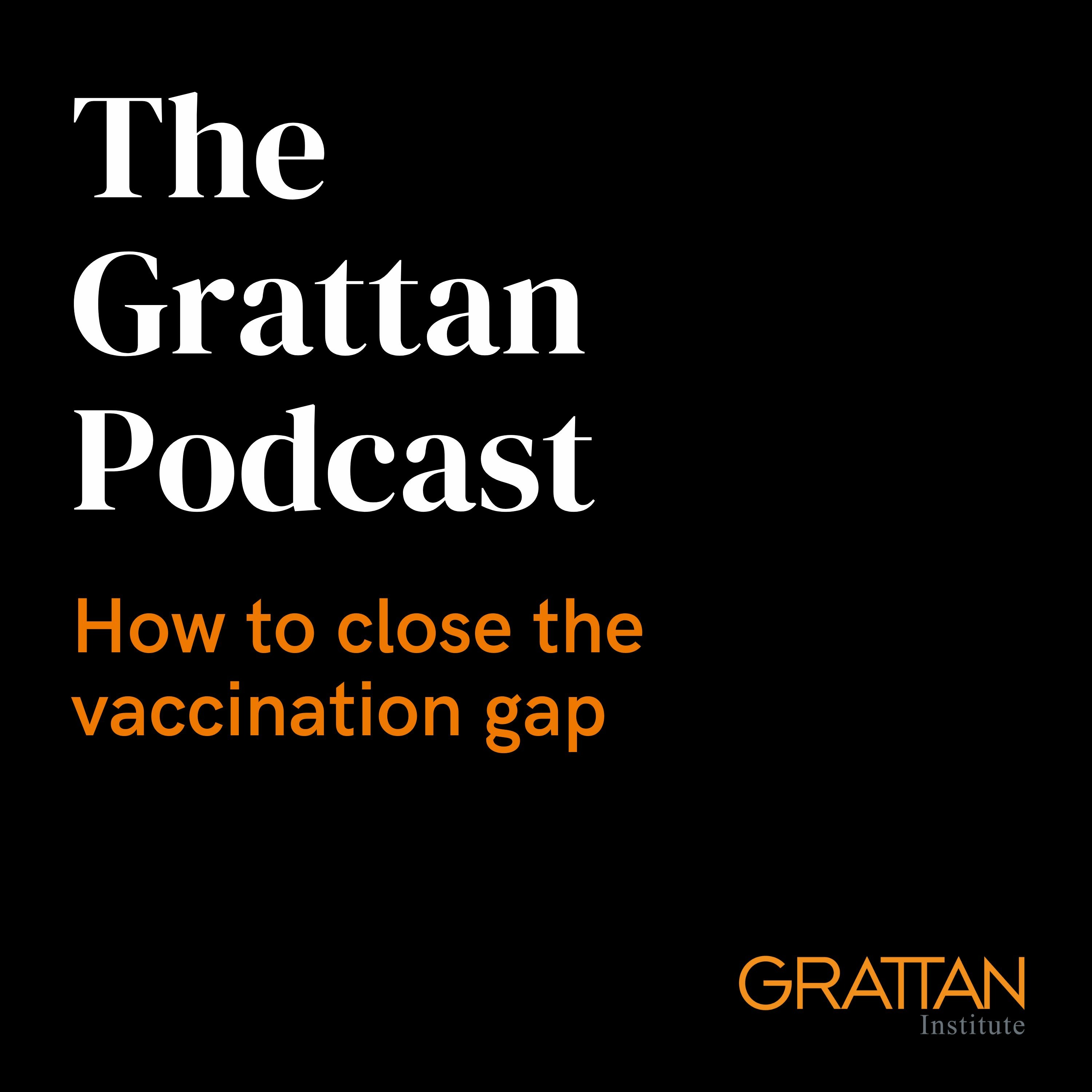

Each year, vaccines save thousands of lives. But in the wake of the pandemic, Australians are sick of hearing about vaccination. Amidst the misinformation on the internet and fatigue from government messaging, many of us have become complacent. New Grattan research shows that millions of older Australians at high risk of serious illness are missing out on essential vaccines, and certain groups of people are more likely to miss out than others. Listen to Peter Breadon, Health Program Director, and Ingrid Burfurd, Senior Associate, discuss their new report with host Kat Clay. Read the report: https://grattan.edu.au/report/a-fair-shot-ensuring-all-australians-can-get-the-vaccines-they-need/
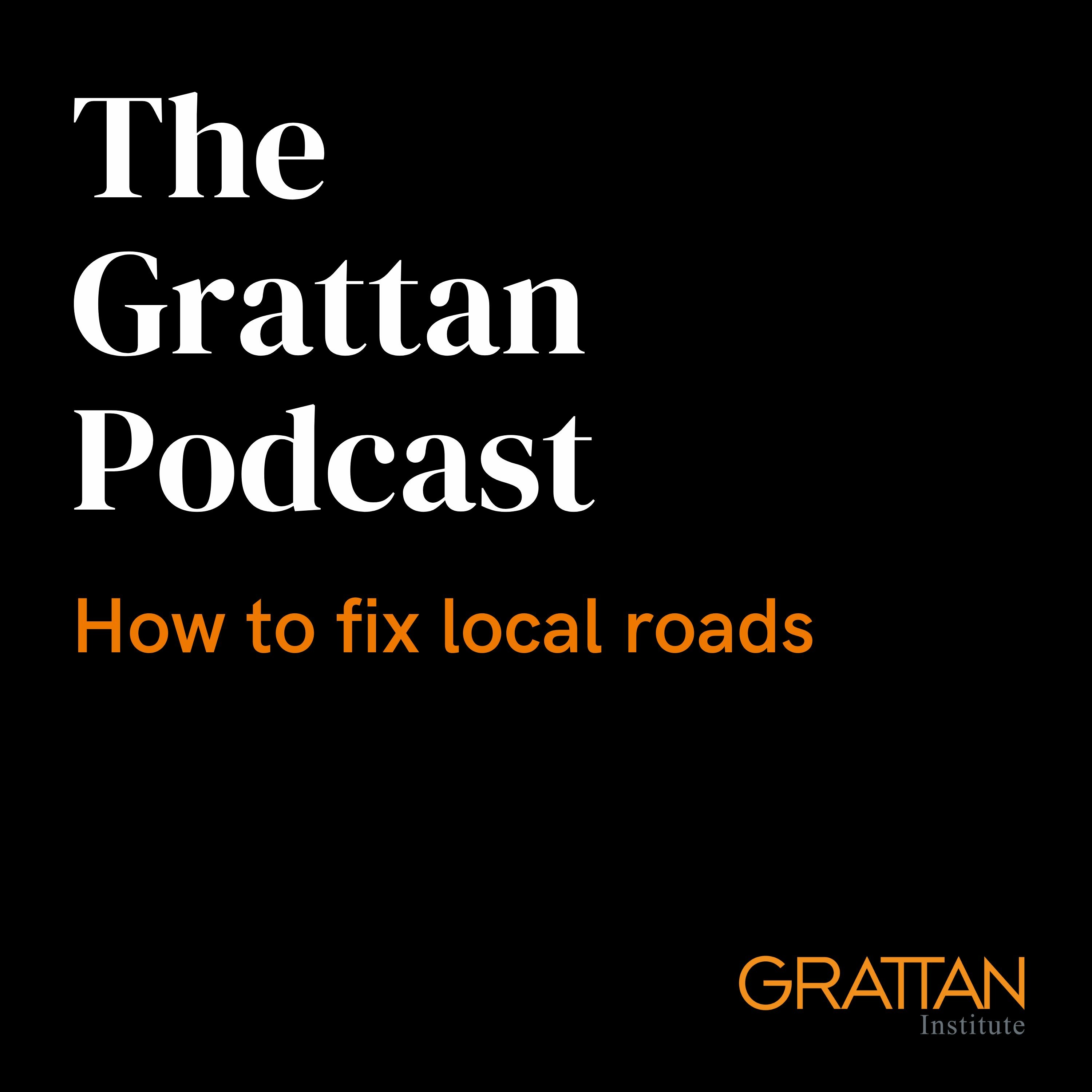

It's no secret that Australian roads are in a state of disrepair, but it's a lesser known fact that three quarters of our roads are managed by local councils. Many councils are struggling to look after our roads, because they don't have the revenue, the capacity, or the expertise. In this podcast, Natasha Bradshaw, Marion Terrill, and Dominic Jones discuss their latest report, Potholes and Pitfalls, which investigates why local roads are in a state of disrepair and provides a roadmap to fix them. Read the report: https://grattan.edu.au/report/potholes-and-pitfalls-how-to-fix-local-roads/ Donate to Grattan: https://grattan.edu.au/donate/
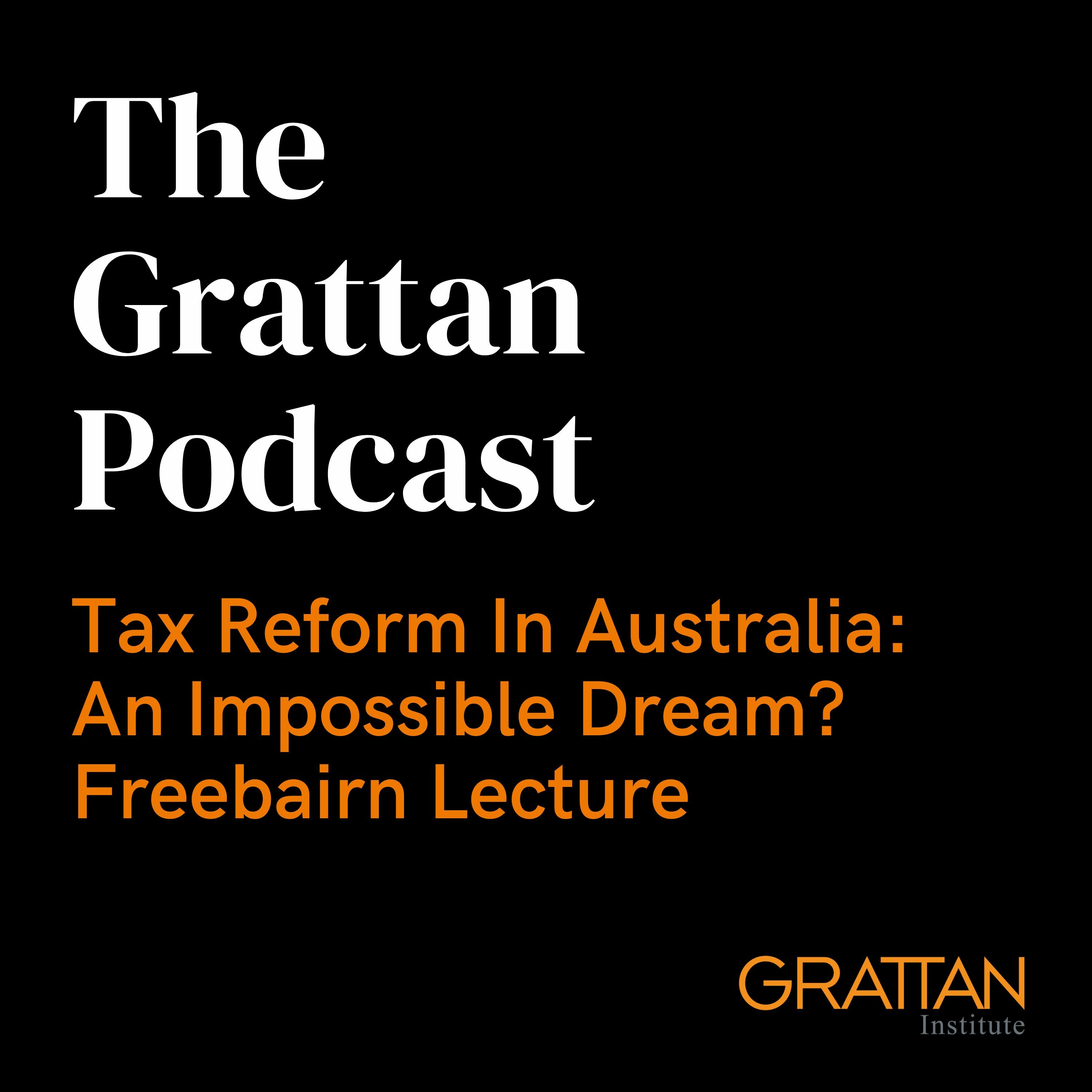

Is tax reform in Australia an impossible dream? Danielle Wood addresses this question in her Freebairn Lecture, given in honour of Professor John Freebairn AO. In this special podcast presentation, she argues that tax reform is essential to rebuild the budget, improve equity, and break down the age segregation in the current tax system. Audio courtesy of the University of Melbourne Faculty of the Business and Economics. Read the full text of the speech: https://grattan.edu.au/news/tax-reform-in-australia-an-impossible-dream/
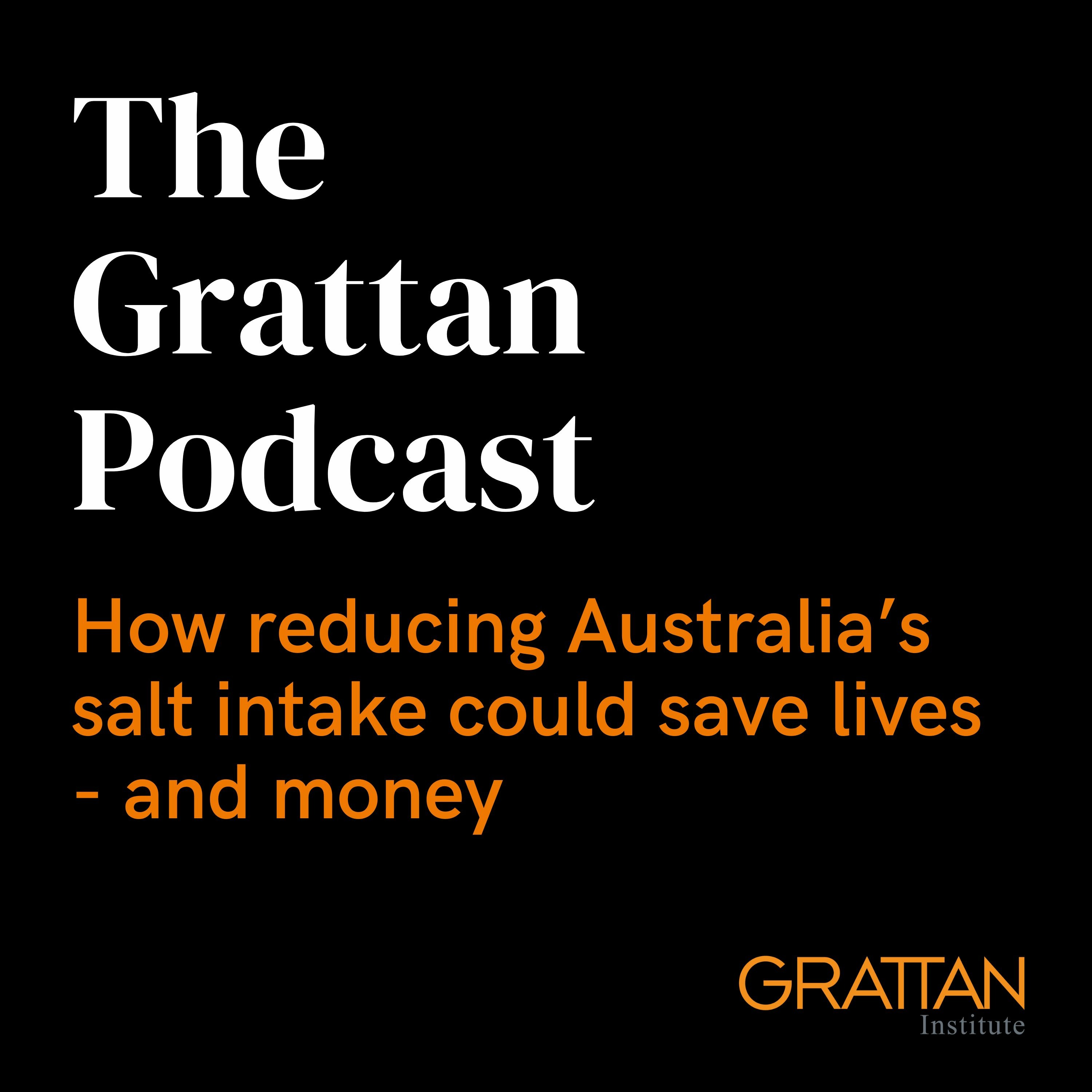

Salt is sneaking into Australian diets, worsening our health outcomes from salt-related diseases. And while Australia has a target to reduce salt intake by 30 per cent by 2030, our food policies lag behind other countries. But are our diets just a matter of personal responsibility? Or does the government have a greater role to play in reducing salt in our diets? Listen to Peter Breadon, Health Program Director, Lachlan Fox, Associate discuss Grattan’s latest report, Sneaky salt: How Australia can shake its salt habit. Hosted by Kat Clay. Read the report: https://grattan.edu.au/report/sneaky-salt/
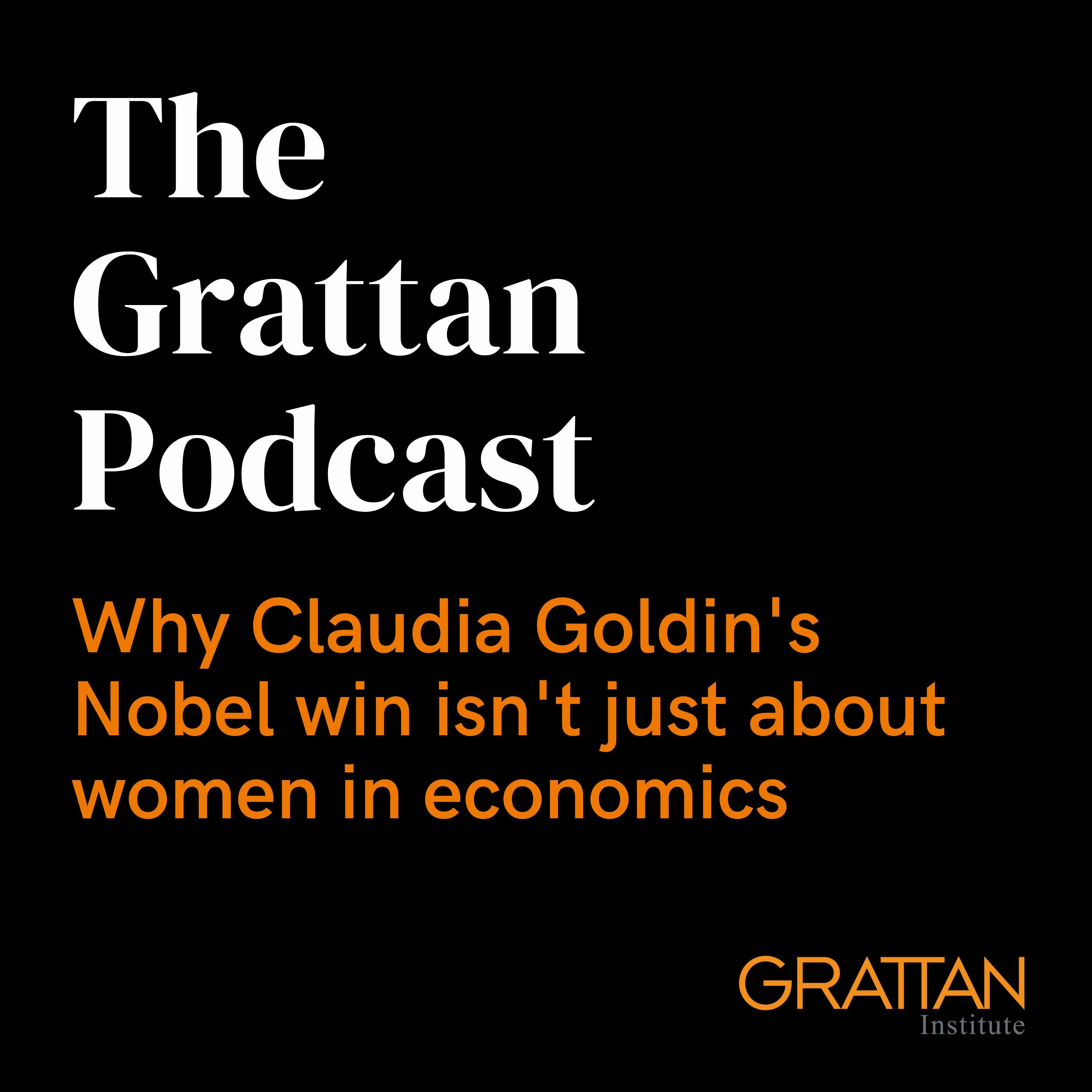

This month, Claudia Goldin made history for being the third woman to win the Nobel Prize for Economic Sciences. As much as this is an outcome to be celebrated as a milestone for women in economics, as an economist, Goldin has shifted the world’s understanding of women’s labour market outcomes. Her influential research examines the reasons for the gender pay gap, and the educational, medical, and cultural progressions which prevent – or enable – women to work. The recent introduction of paid parental leave changes to the House of Representatives is just one way to increase women’s workforce participation in Australia. But are there more ways for Australia to improve economic outcomes for women? This podcast examines Goldin’s research, and what it means for Australia – and especially, Australian women. Helpful links Announcement of Claudia Goldin's Nobel win https://www.nobelprize.org/prizes/economic-sciences/2023/press-release/ Career and Family by Claudia Goldin: https://press.princeton.edu/books/hardcover/9780691201788/career-and-family Greedy jobs, labour market institutions, and the gender pay gap by Kristen Sobeck: https://ssrn.com/abstract=4306651 Children and the Gender Earnings Gap: Evidence for Australia by Elif Bahar, Natasha Bradshaw, Nathan Deutscher and Maxine Montaigne https://treasury.gov.au/sites/default/files/2023-03/p2023-372004.pdf On the Origins of Gender Roles: Women and the Plough https://scholar.harvard.edu/nunn/publications/origins-gender-roles-women-and-plough
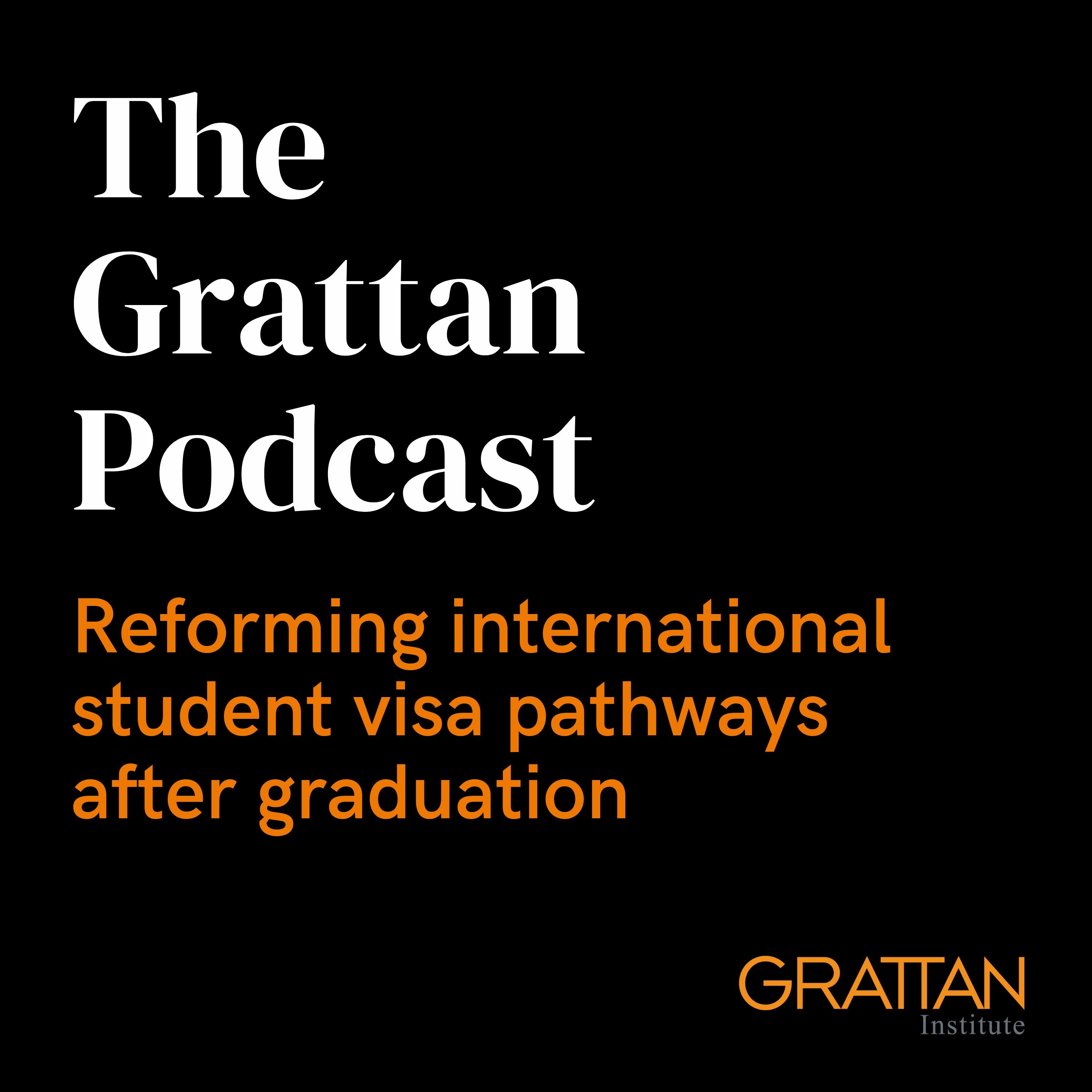

Australia faces stiff competition to attract the best students to study and stay in Australia. But a growing cohort of international students are being left behind on temporary visas, struggling to pursue their chosen careers. Grattan's latest report, Graduates in limbo: International student visa pathways after graduation, shows how government can fix visa pathways to give talented graduates a chance to shine, without offering false hope to students. Associate Tyler Reysenbach, is joined by Program Director Brendan Coates and Deputy Program Director Trent Wiltshire, to talk about what the federal government can do to reform the graduate visa system. Read the report: https://grattan.edu.au/report/graduates-in-limbo/
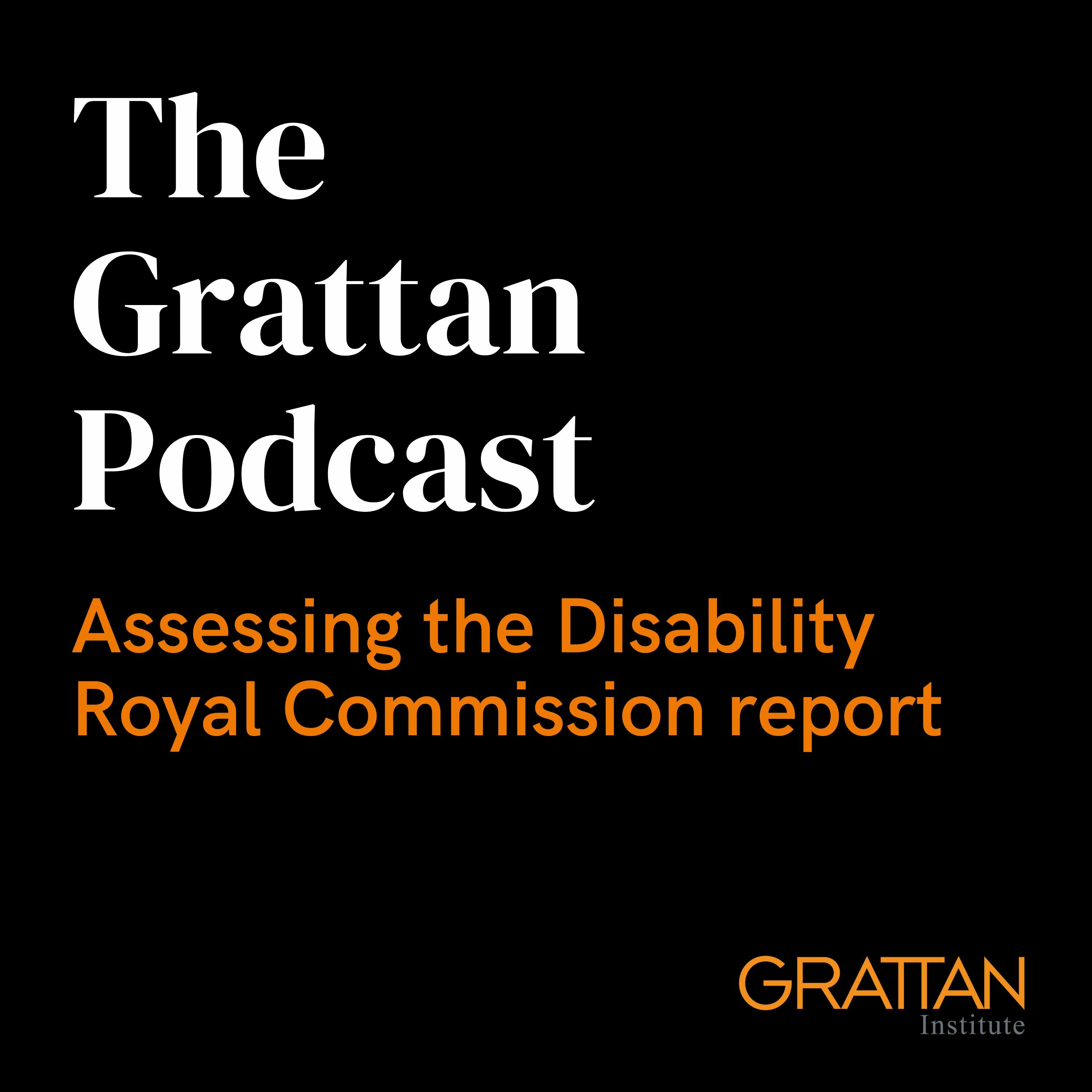

After four years, 32 public hearings, 8,000 submissions, and almost 10,000 people sharing their experience, the Disability Royal Commission has handed its final report to Government. Throughout the investigation, the commission has heard horror stories of abuse, neglect, coercion, unscrupulous NDIS providers, and severe underpayment of workers with disability. With over two-hundred recommendations, the federal government has an enormous task ahead of them to improve outcomes for people with disability. This podcast looks at some of those recommendations, and where governments should start. The report release coincides with the launch of Grattan’s disability program, graciously supported by the Summer Foundation. To discuss the report, host Kat Clay is joined by the members of Grattan’s new disability team, Sam Bennett, Program Director, and Hannah Orban, Associate. For more information, visit: https://grattan.edu.au/
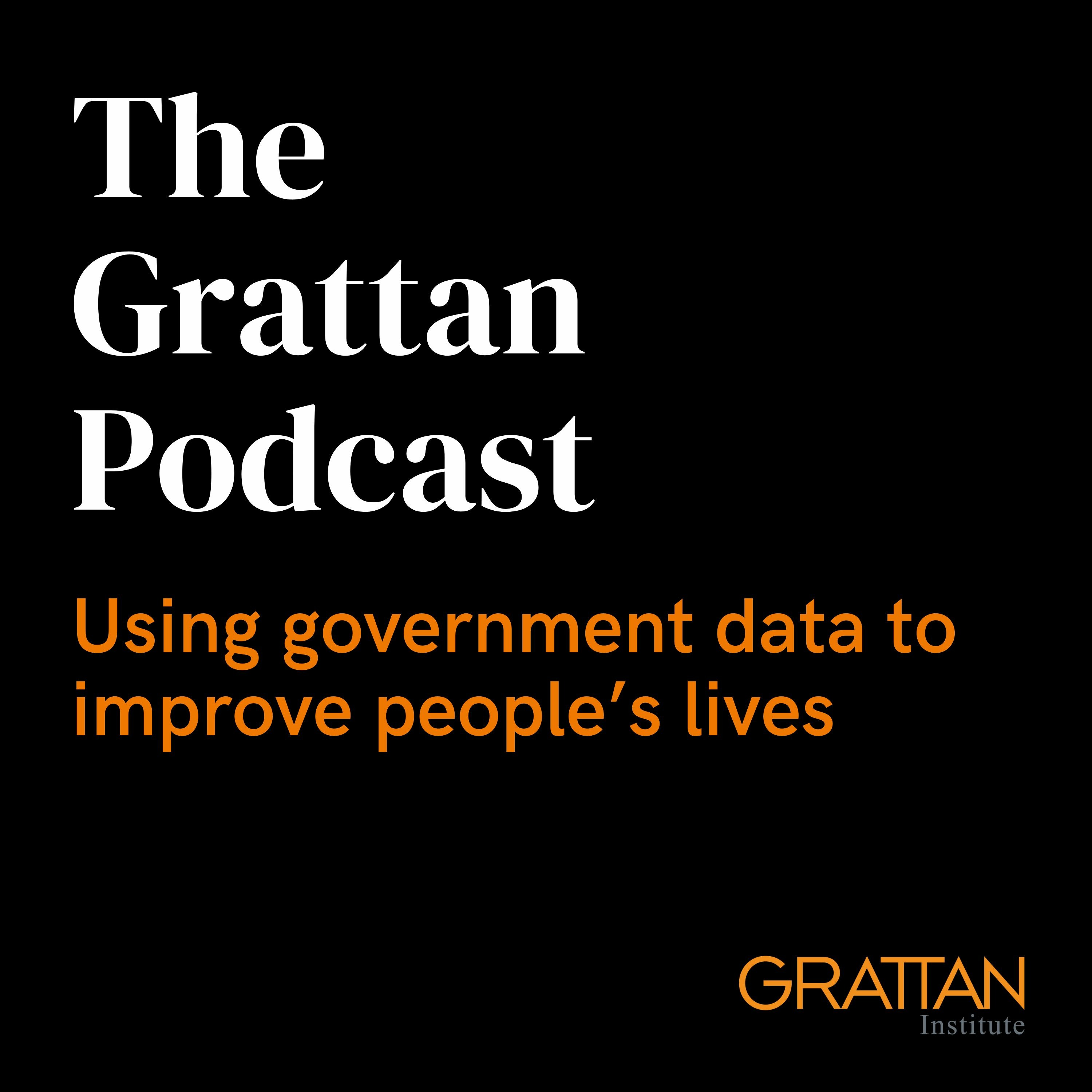

Our governments know a lot about us. They hold data on how much we earn, how much tax we pay, our health records, business earnings, even whether we have a fishing license. As we saw during the worst days of the COVID-19 pandemic, data on the spread of the virus and the pace of the vaccine rollout was vital for keeping us safe and holding our governments to account. Government data is also essential for informed public policy debates, and it’s invaluable for researchers and others who advocate for better public policy. But a lot of government data in Australia is locked up behind closed doors. And when governments do make data available, it is often published in ways that are difficult to understand and unwieldy for researchers to use. In this special Grattan Podcast, Grattan data specialist Tyler Reysenbach is joined by Adam Sparks, a Senior Research Scientist with Western Australia's Department of Primary Industries and Regional Development, and Matt Cowgill, Senior Economist at SEEK, to talk about how our governments could get better at data, and how things could be improved in ways that would improve public policy and, ultimately, the lives of all Australians.
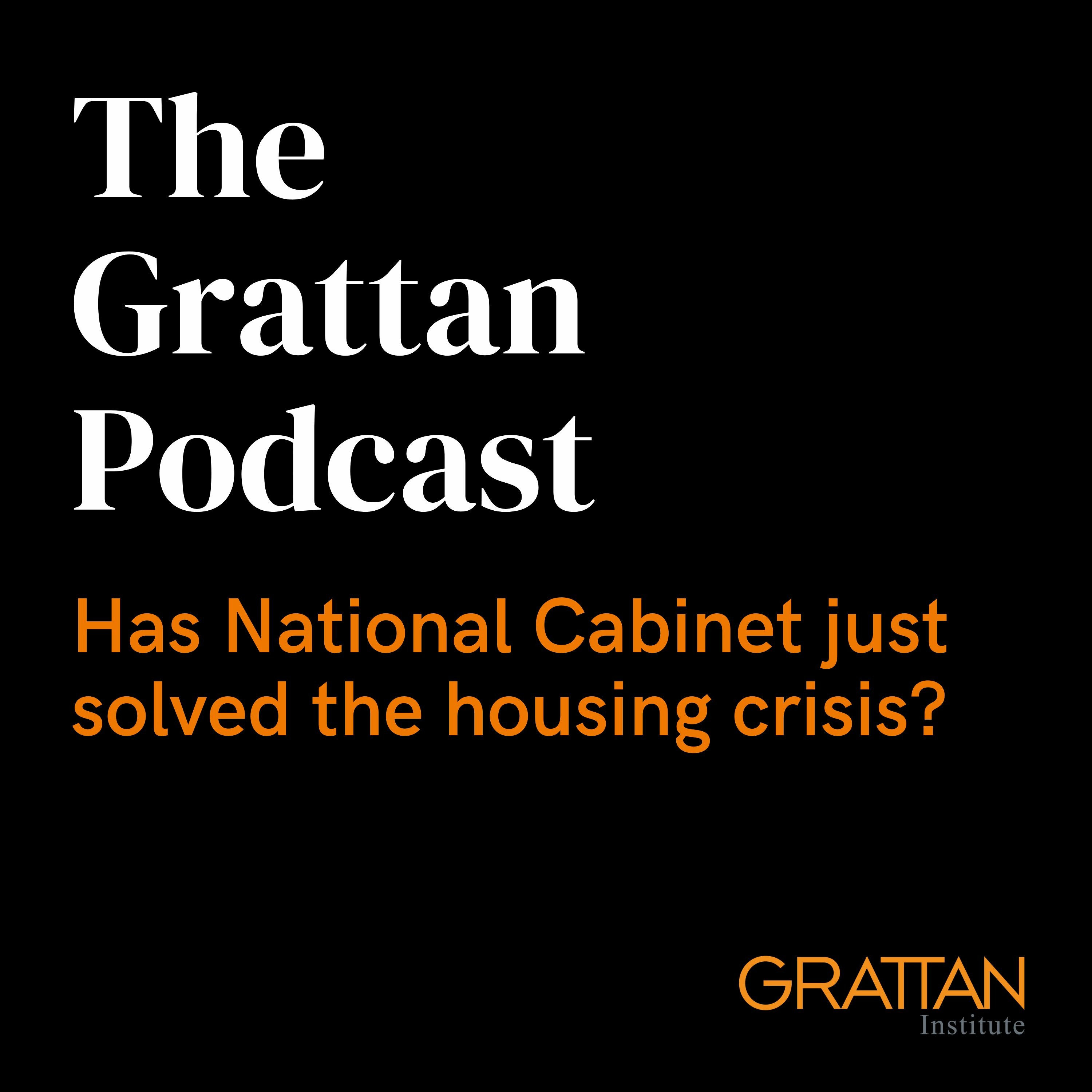

Last year, the federal government struck a Housing Accord with the states. Together, they committed to build 1 million new, well-located homes across Australia over the next five years. But sky-rocketing rents have turned up the heat on governments to do much more. Last month, National Cabinet responded. The new target is 1.2 million homes over five years, with the federal government offering financial rewards to whichever states do the most to get us towards the new target. And the Prime Minister and the Premiers also promised a better deal for renters. Will it be enough? In this special Grattan Podcast, our housing experts Brendan Coates and Joey Moloney unpack the National Cabinet package, explain why it’s important, and identify the next challenges for policy-makers as they struggle to make housing more affordable for more Australians.
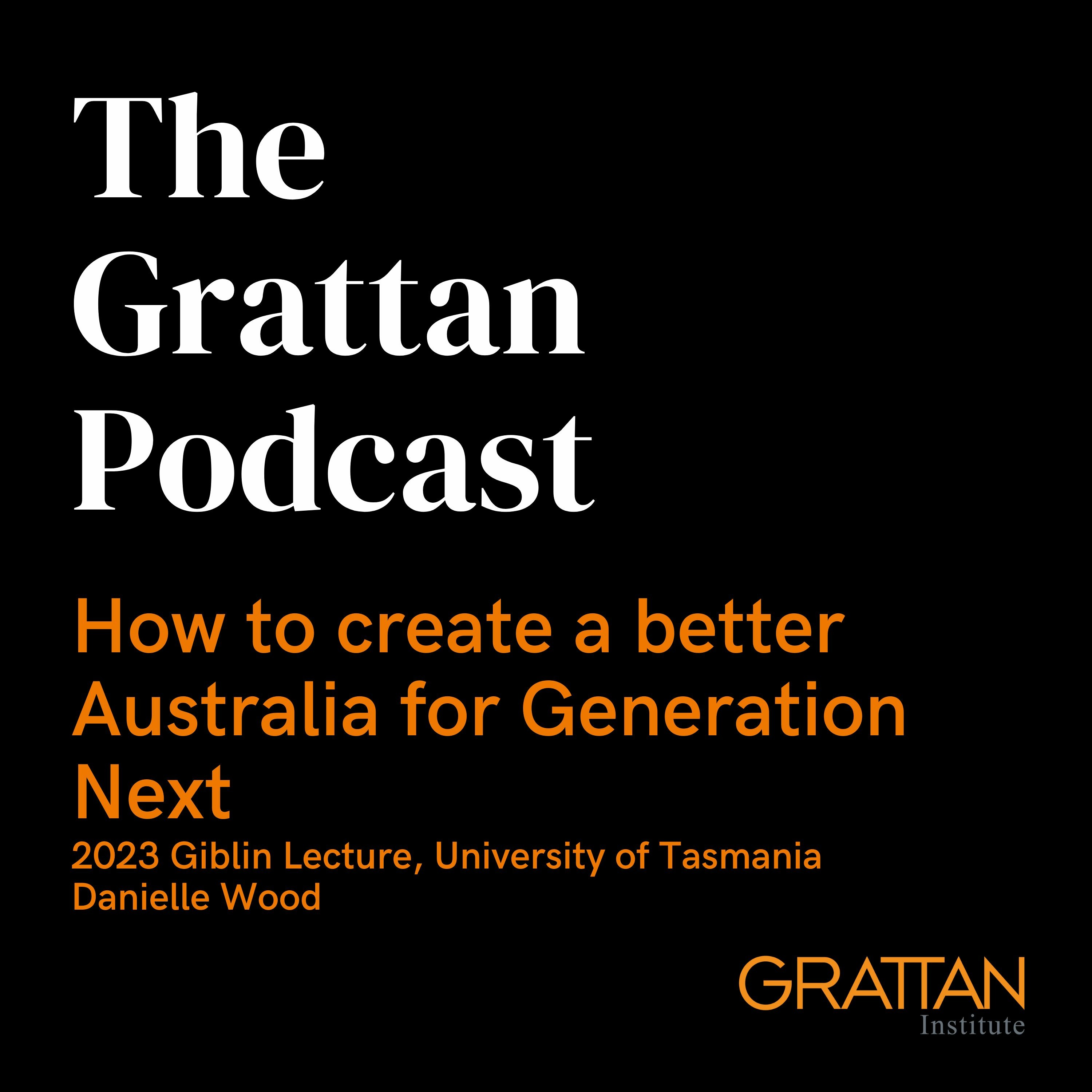

Grattan Institute CEO Danielle Wood delivered the annual Giblin Lecture in Hobart last week. A partnership between the University of Tasmania and the Tasmanian branch of the Economic Society of Australia, the lecture is named for the eminent Australian economist, Lyndhurst Falkiner Giblin. Danielle used the occasion to issue this plea: “Let’s drop the petty generational warfare, and work together to ensure that the Australia we leave to our children is better than the one we inherited.” And she set herself this tough task: “I want to explore the issues that young people tell us are keeping them up at night, and let them know why this has happened but also what we might as a nation do about it.” In this special edition of the Grattan Podcast, we present a recording of Danielle delivering the lecture, complete with slides.
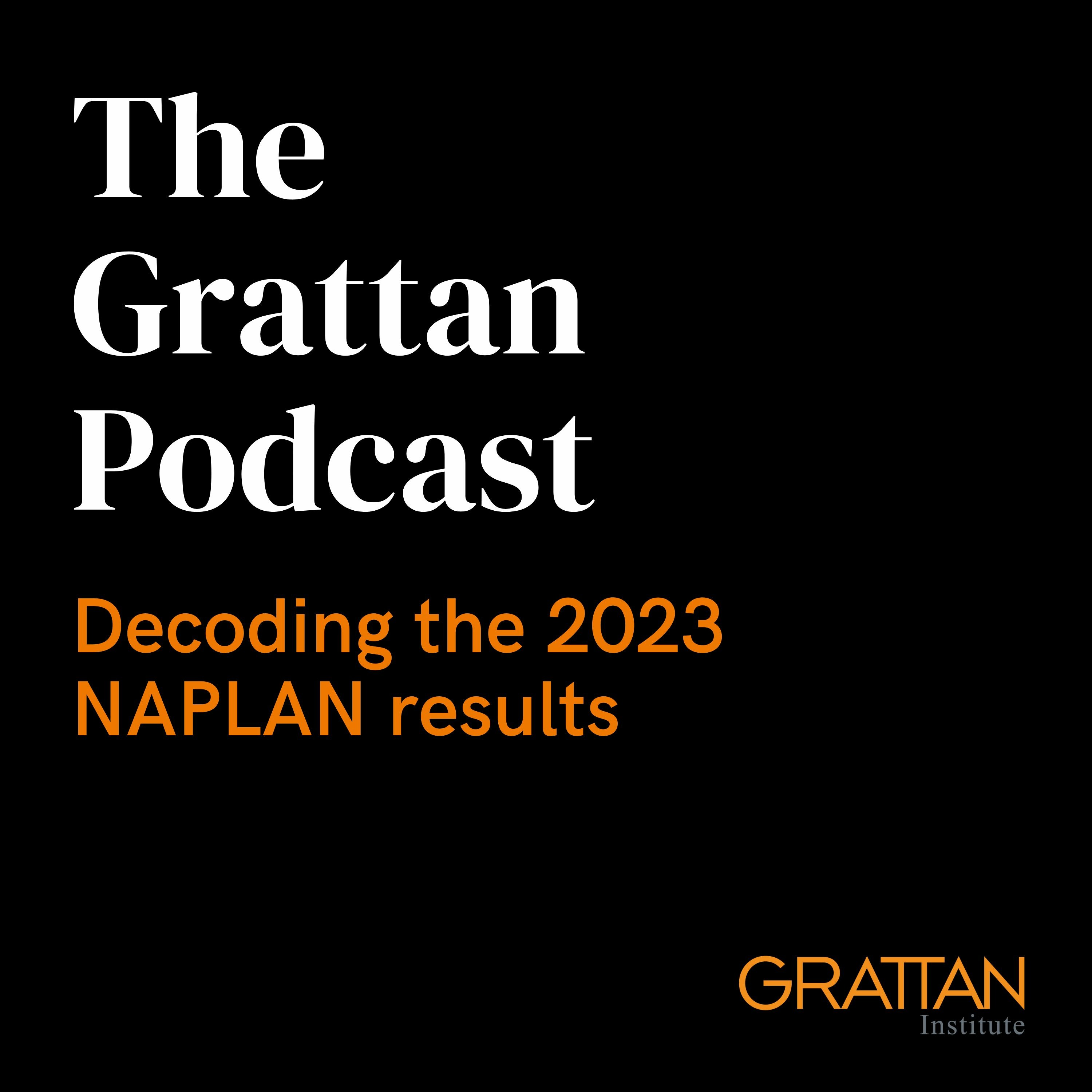

The 2023 NAPLAN school test results released this week show that 1 in 3 Australian students are not on track with their learning. The results also reveal deep inequities in Australian schools, with more than half of disadvantaged students performing below expectations. In this special Grattan Podcast, our NAPLAN specialists Anika Stobart and Nick Parkinson discuss why Australia is performing so poorly, and what governments should do to turn this around so all students have the literacy and numeracy skills they need to have their best chance in life.
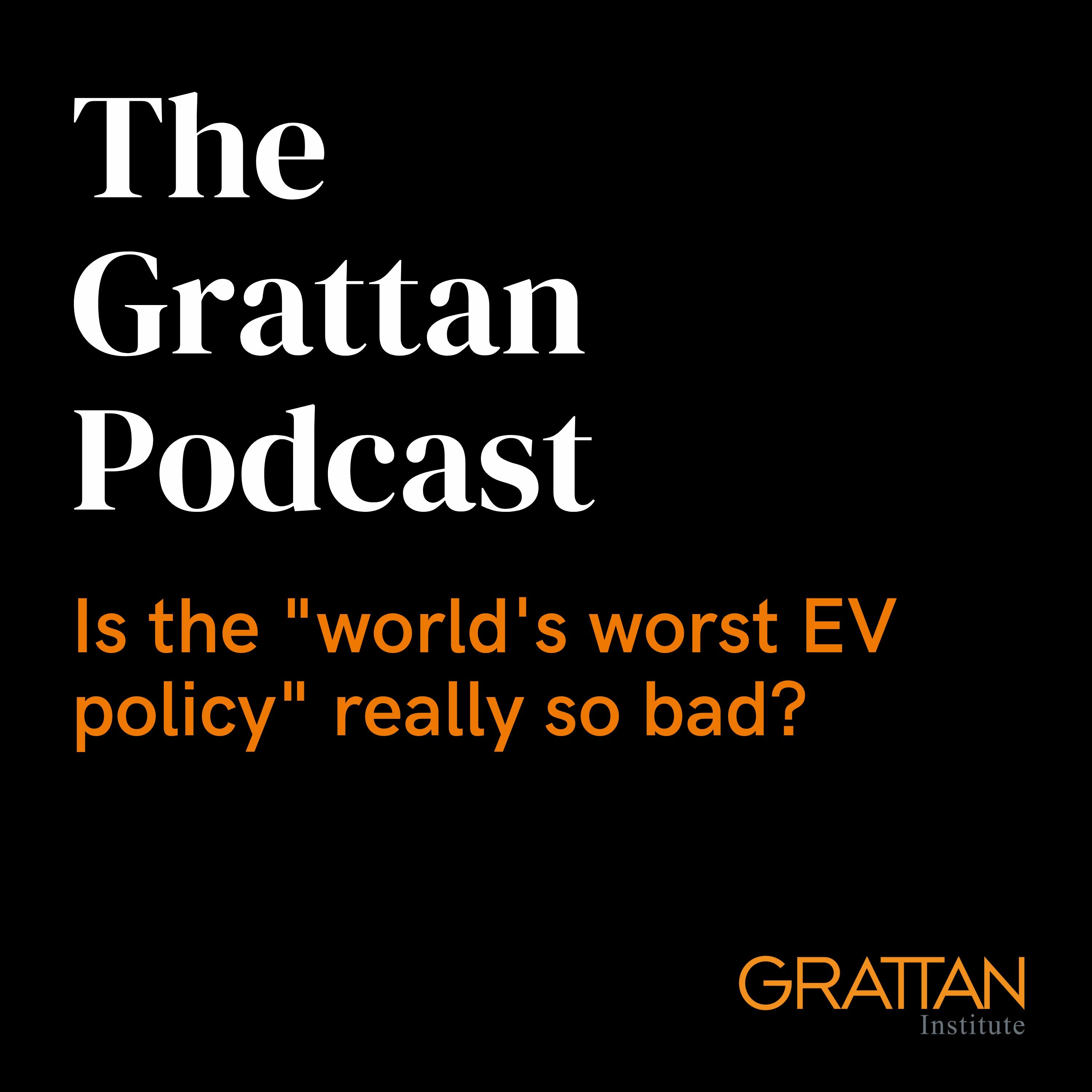

Dubbed by some as the “world’s worst electric vehicle policy”, Victoria introduced a per-kilometre charge on electric vehicles and plug-in hybrids in 2021. EV drivers were so riled up about the charge that they headed to the High Court to fight it. We’re now awaiting the High Court’s decision, which will determine whether state governments have the constitutional authority to impose the tax. But is it really such a bad policy? And, more broadly, why is Australia so far behind other countries in making the switch from high-polluting petrol and diesel vehicles to EVs? In this latest Grattan Podcast, our transport experts Marion Terrill and Natasha Bradshaw discuss the implications of the High Court case for revenue-raising, electric vehicle take-up, and the future of road-user charging.
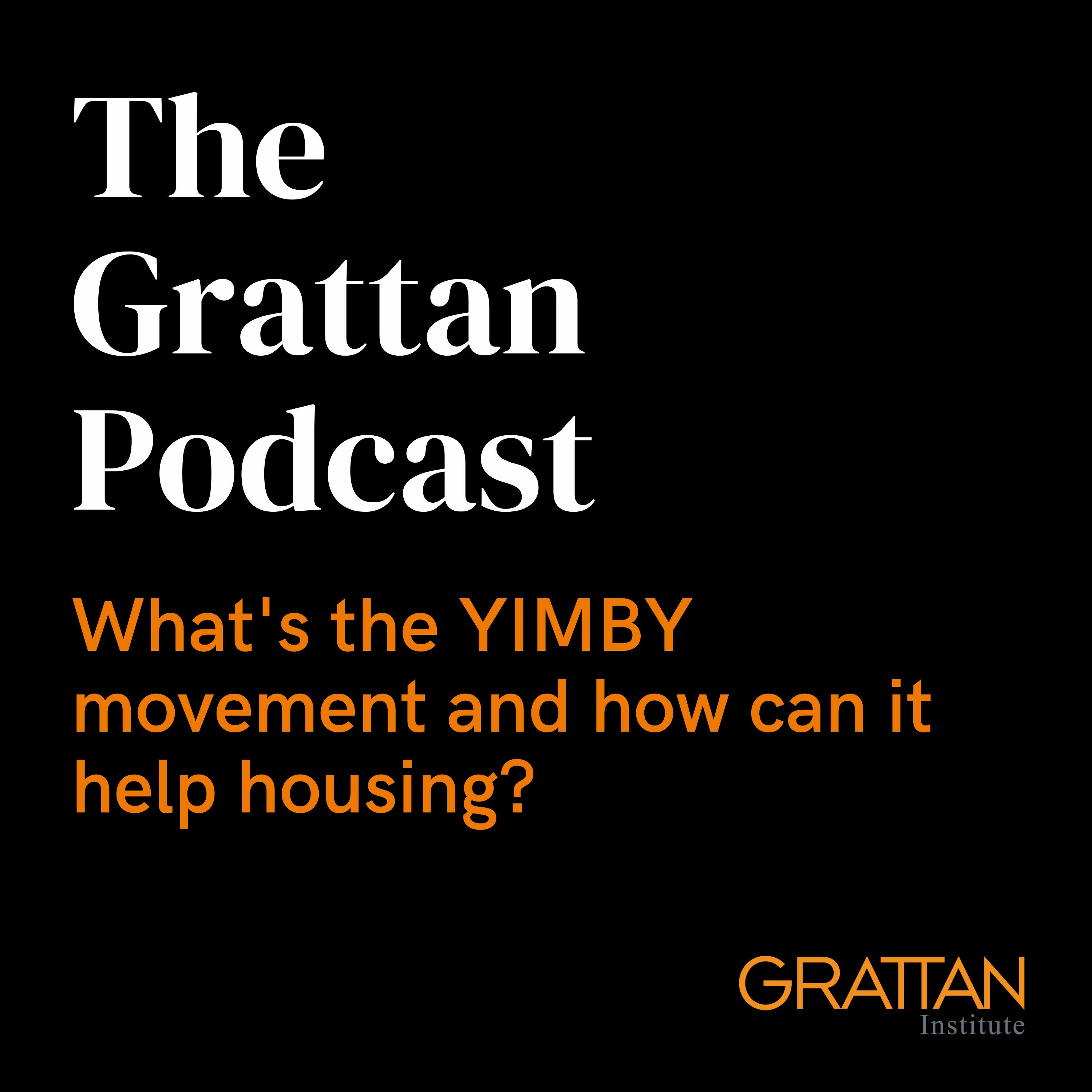

Grattan Institute’s work on housing policy keeps coming back to one basic idea: Australia needs more housing in the areas where people want to live and work. So why hasn’t Australia built enough homes to keep prices under control? Because of the land-use planning regulations that dictate what gets built where. Those planning regulations have a status-quo bias. They give too much say to people who oppose development or change – the so-called ‘NIMBYs’, or ‘Not-in-my-backyard’. Enter the ‘YIMBY’ movement: enthusiastic young people who say ‘Yes-in-my-backyard’. In this special Grattan podcast on Australia’s housing crisis, our Senior Associate, Joey Moloney, and guests Jono O’Brien and Melissa Neighbour from the YIMBY movement discuss this grass-roots movement that aims to revolutionise the housing debate and make it easier for young Australians to get a roof over their heads.
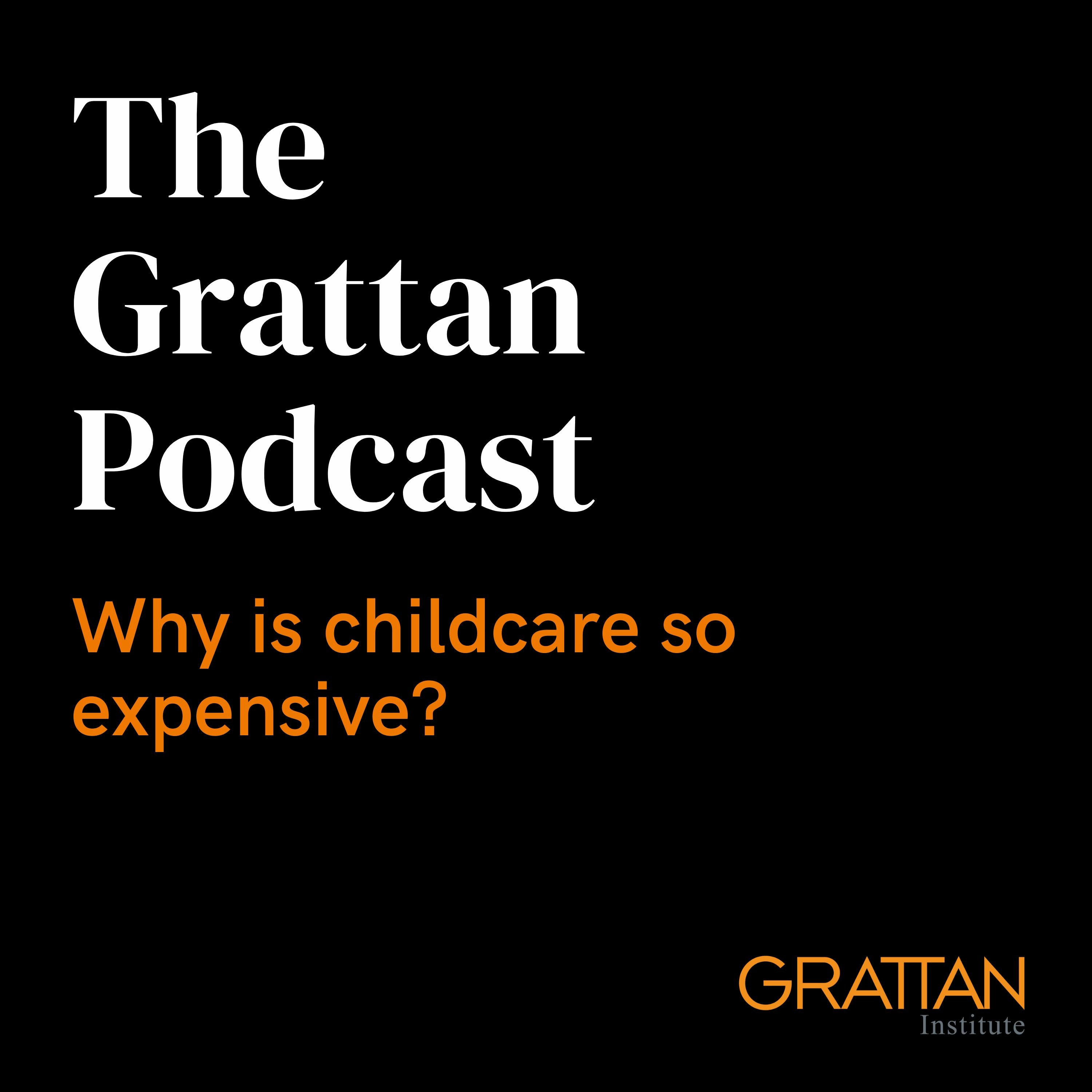

Early education and care are hugely important. It’s where children are first exposed to the education system, in a period that’s crucial for their brain development. It's also important for the economy – particularly for supporting women back into the workforce. So why is it so expensive, even with government subsidies? Listen to Grattan CEO Danielle Wood, in conversation with Grattan Fellow Iris Chan, on how to make childcare cheaper.
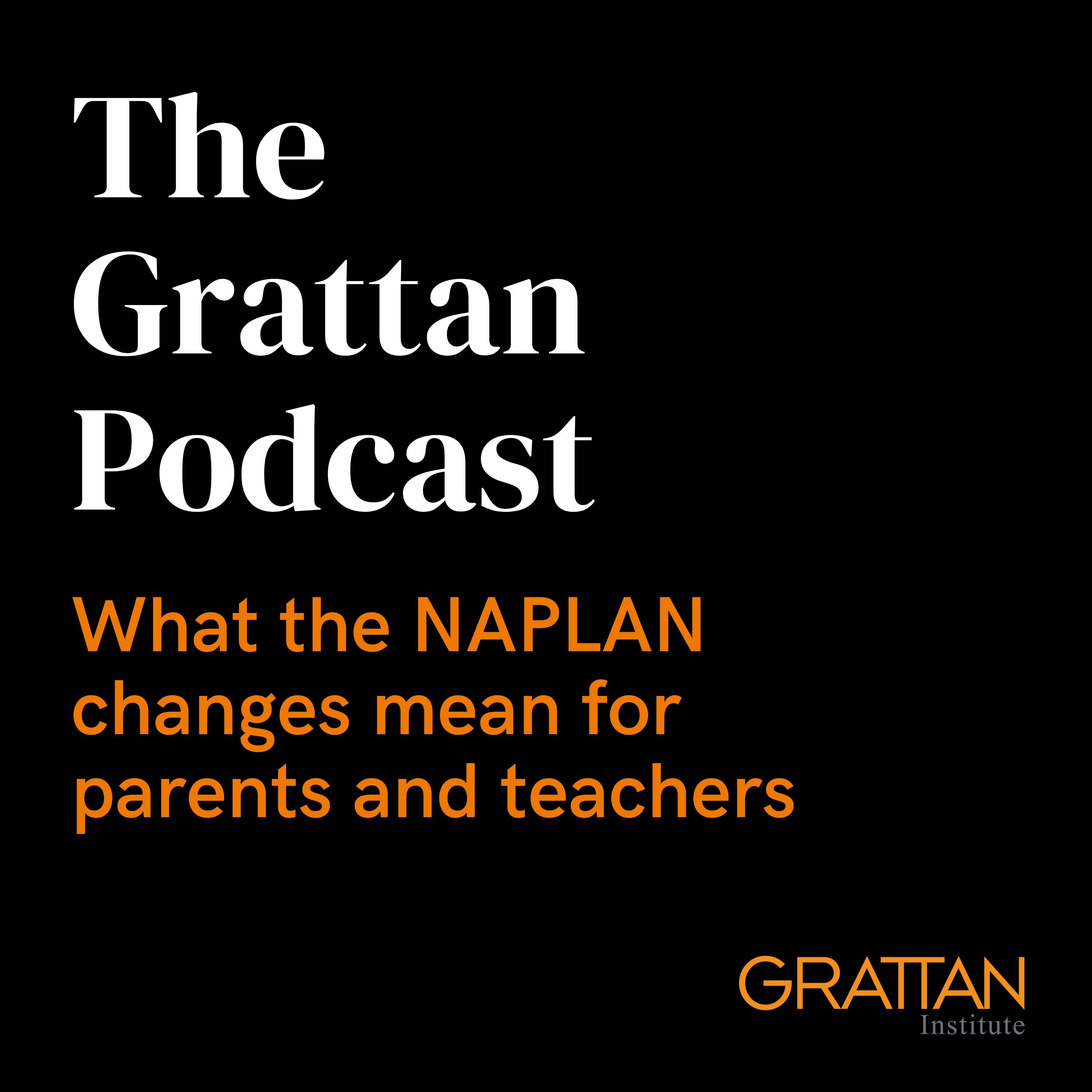

This year, the NAPLAN report card will look very different. For the first time, parents will be told whether their child has met the new “proficient” benchmark for their level, in reading, writing, numeracy, and grammar. With four proficiency categories, all with new terminology, what does this mean for parents and teachers? Grattan Institute Associates Nick Parkinson and Dominic Jones discuss the new-look NAPLAN.
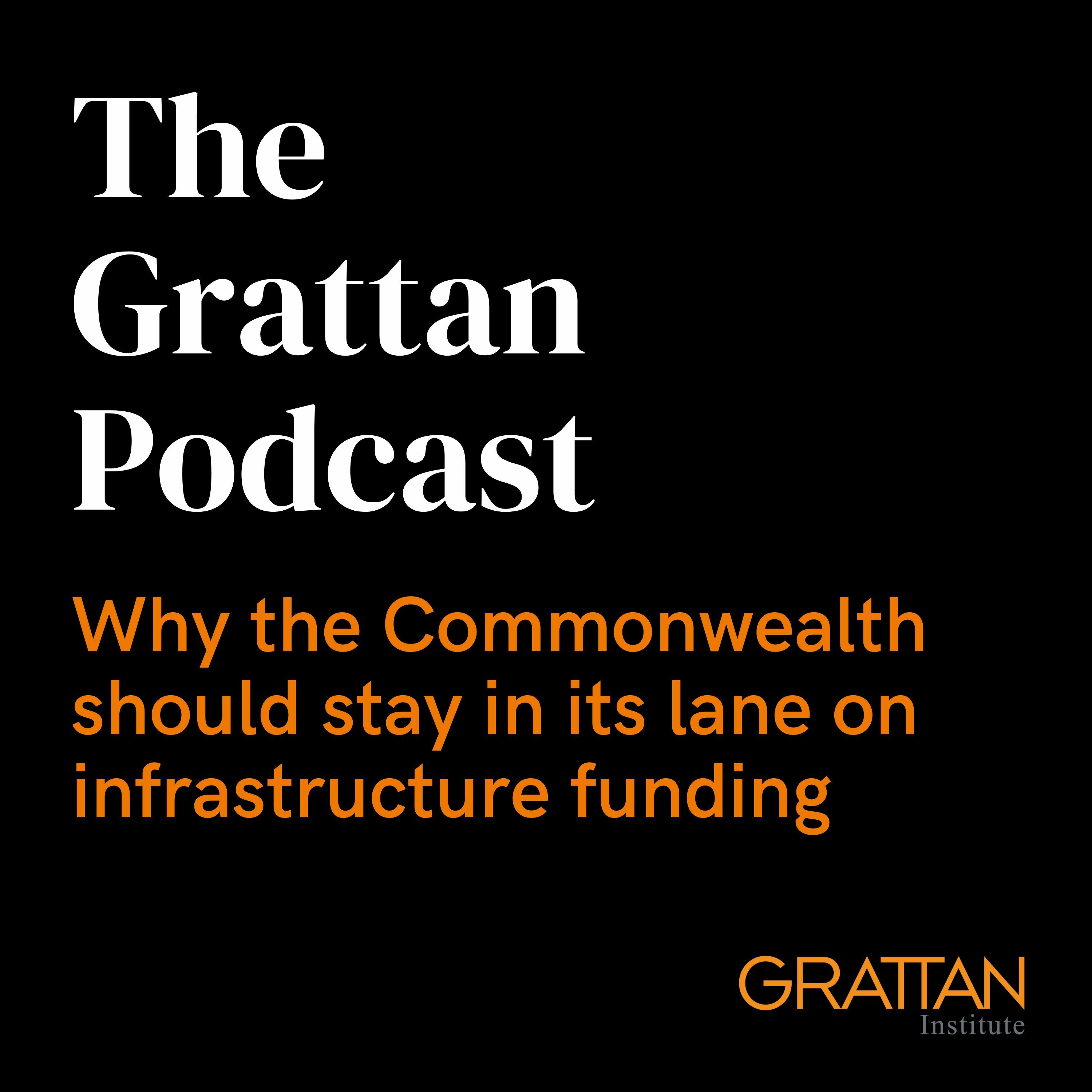

The Commonwealth Government has called for a 90 day snap review into the Infrastructure Investment Program (IIP). Where the original intention of the IIP was to fund projects of national significance, the program has since ‘drifted away’ from its original ambitions. But should the Commonwealth Government be involved in infrastructure funding at all? Our previous research has shown that federal funding of state and local infrastructure projects can often be used as an exercise in pork-barrelling. Roundabouts and carparks aren’t exactly the Sydney Opera House. Marion Terrill, Transport and Cities Program Director, and Natasha Bradshaw, Associate, discuss how federal infrastructure spending should be best used, with host Kat Clay.
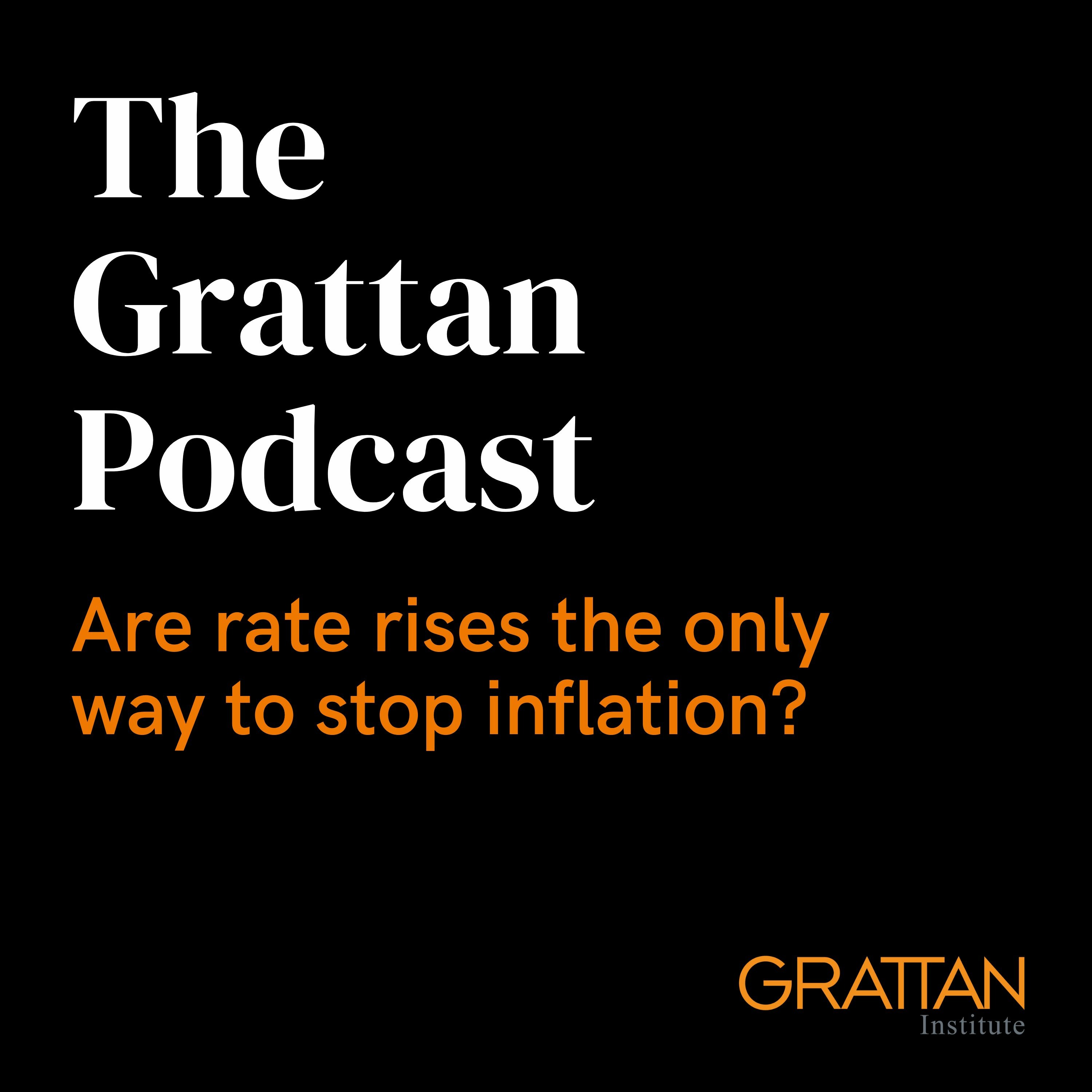

The RBA has held off on raising the cash rate - for now. This comes as a sigh of relief to home owners, who have slogged through 12 rate rises since May 2022. But with warnings of further rate rises, many people are questioning whether they’re the only way to stop inflation. Listen to Trent Wiltshire, Deputy Program Director of Economic Policy, and Joey Moloney, Senior Associate, discuss how to stop inflation with host Kat Clay. For more information, visit: https://grattan.edu.au/
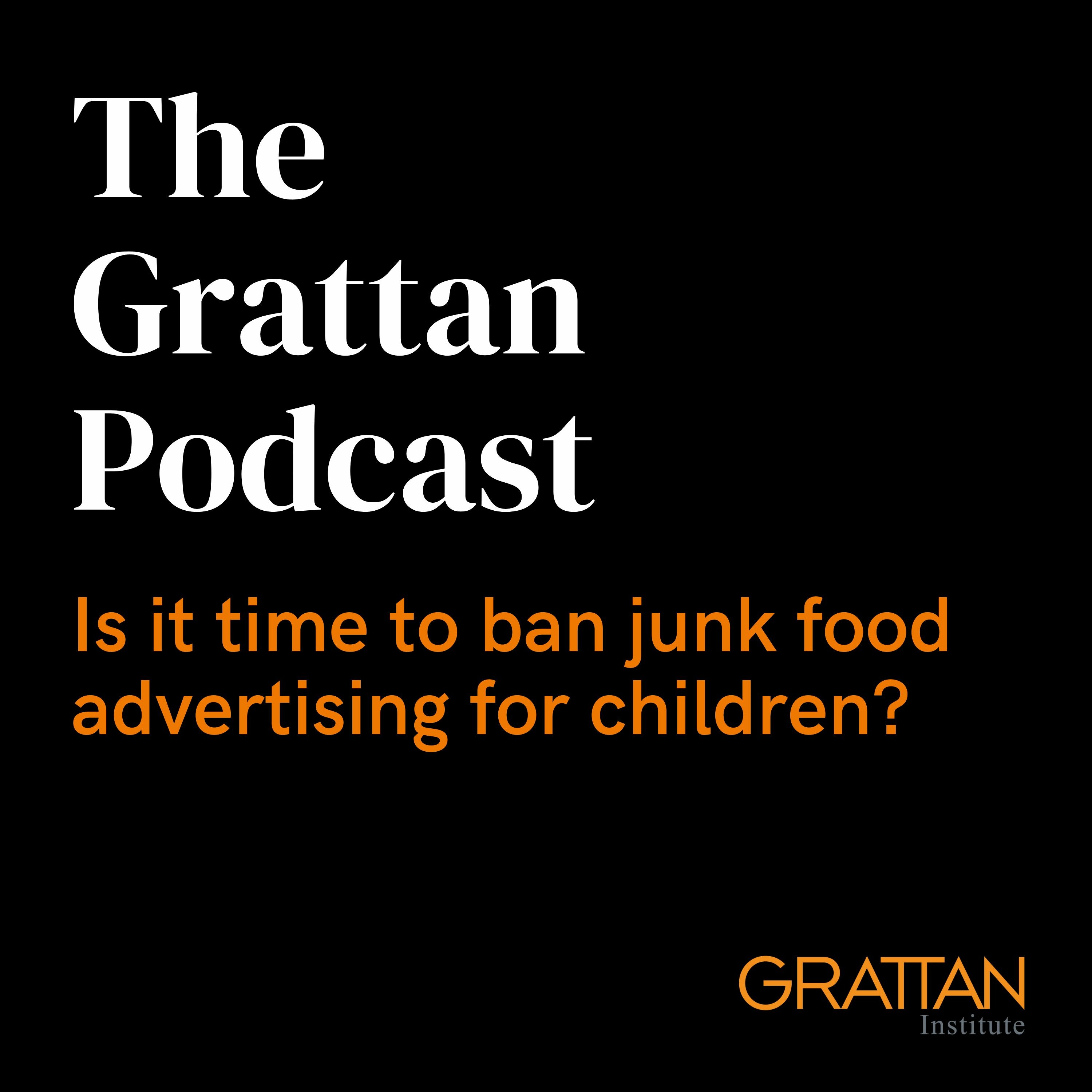

Independent MP and former GP Sophie Scamps has introduced a bill into federal parliament that would restrict junk food advertisements aimed at children. This isn’t the first time a ban on junk food advertising has been floated. But there are more reasons than ever to make it happen. Listen to Peter Breadon, Health Program Director, in conversation with host Kat Clay, to discuss the bill, and what governments should do to decrease childhood obesity. Donate to Grattan: grattan.edu.au/donate